










CHAYEI SARAH SHABBAT: BEGINS ENDS
London 15:58 17:02 Manchester 15:58 17:06 Leeds 15:51 17:06 Liverpool 15:58 17:13
15:58 17:06
16:37 17:48
16:04 17:14
15:46 17:03
16:04 17:18













CHAYEI SARAH SHABBAT: BEGINS ENDS
London 15:58 17:02 Manchester 15:58 17:06 Leeds 15:51 17:06 Liverpool 15:58 17:13
15:58 17:06
16:37 17:48
16:04 17:14
15:46 17:03
16:04 17:18

BY DAVID SAFFER
Jewish leaders have welcomed the resignations of BBC Director General Tim Davie and BBC News CEO of News Deborah Turness this week.
Davie and Turness announced their decision following criticism over a Panorama documentary that misled viewers about a speech by US President Donald Trump encouraging the Capitol Hill riot.





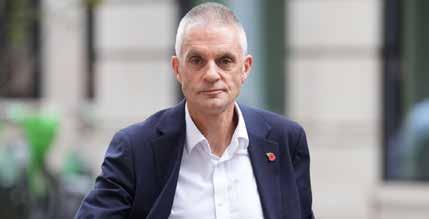
Trump has written to the BBC threatening to sue the corporation for $1bn (£760m) unless there is a “full and fair retraction” retraction. The BBC has stated it will reply in due course.
Trump said the broadcaster had changed a “calming” speech into a “radical” one.
BBC chair Samir Shah has apologised for an “error of judgement” over the Trump-Panorama episode.
A Downing Street spokesman said: “The BBC is independent and it’s for the corporation to respond to questions about their editorial decisions.”
But Conservative leader Kemi Badenoch said the BBC had “continually let down


licence fee payers”. Campaign Against Antisemitism led the communal response against the BBC.
A spokesperson said the resignations of Davie and Turness should be seen as an “admission through gritted teeth” that BBC impartiality has been a “sham” particularly throughout the Gaza war.
“The BBC’s growing bias has extended over many years across a wide array of issues, but for British Jews, the gravest betrayal is that on the watch of Mr Davie and Ms Turness,” they noted.
“The BBC has often served as a mouthpiece for Hamas, feeding licence fee payers a diet of propaganda that has been a central
feature of the drumbeat of incitement across the West. Despite being caught out many times, the BBC has gaslit its audience by claiming to be a bastion of ethics and truthful journalism, even as our polling has shown that 92% of British Jews consider BBC coverage to be unfavourable on matters of Jewish interest. The fact that they managed to stay on for so long, even after it was revealed months ago that the BBC had sent money to a Hamas official’s family, is clear proof that there is a wider problem at the broadcaster which it cannot be trusted to fix alone.”
CAA added: “The BBC cannot now replace its outgoing Director General and CEO of News with others sourced from the same BBC rotten executive class. There now needs to be an independent inquiry into BBC bias, with its results published for all to see, resulting in a rooting out of those who have hijacked the BBC into a vehicle that serves an increasingly warped agenda. Until that independent inquiry comes, it is unconscionable to force taxpayers to pay for the biased, sanctimonious and unaccountable BBC.”
Continued on page 4










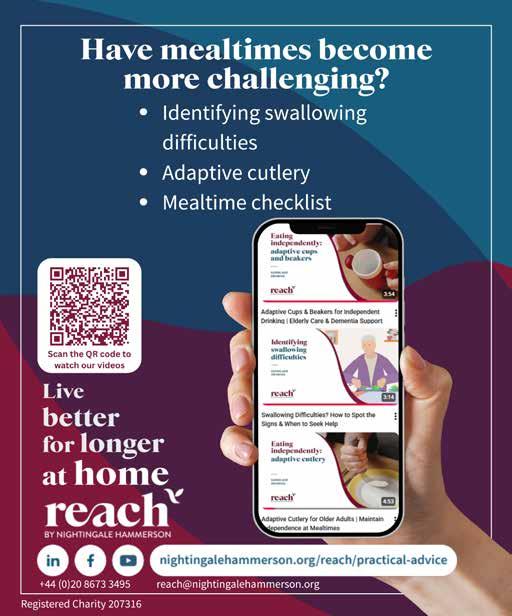

Continued from page 1
Steve Winston, National Jewish Assembly managing director, noted: “Davie and Turness may be gone, but their denials can’t erase years of anti-Israel bias. The BBC’s credibility crisis, from slanted Middle East coverage to a doctored Trump video, shows how far it has strayed from impartial journalism. And while the two most senior figures have resigned, those responsible for creating and approving the biased and misleading content remain in place. Until there is accountability at every editorial level, there can be no confidence in any meaningful change at the BBC.”
Jonathan Metliss, Action Against Discrimination, expressed relief Davie and Turness had departed.
“The BBC’s clear anti-Israel bias over many years and its pro-Hamas propaganda peddled by the BBC and its reporters have been disgraceful and an insult to the State of Israel and UK Jewish community,” he noted. “Persistent campaigning, demonstrations and pressure on the BBC by the community have clearly had an impact with the desired effect. Misleading bias by the BBC has without doubt fuelled and encouraged
antisemitism in the UK which is now rampant. This is in addition to the woke and misleading policies and information adopted and promoted by the BBC. The question now arises who will replace them and will the BBC continue with its anti-Israel and pro-Hamas policy.” Davie was in the hot seat over scandals including the Gary Lineker furore, Bob Vylan at Glastonbury, and Gaza: How To Survive A Warzone documentary. He said in a statement, said: “Overall the BBC is delivering well, but there have been some mistakes made and as director general I have to take ultimate responsibility.”
Turness noted: “The ongoing controversy around the Panorama on President Trump has reached a stage where it is causing damage to the BBC… the buck stops with me… While mistakes have been made, I want to be absolutely clear recent allegations that BBC News is institutionally biased are wrong.”


Spend your retirement doing what you love - not worrying about money
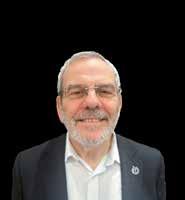

BY ADAM MOSES
The families of hostages Ran Gvili, Meny Godard, Dror Or, and Sudthisak Rinthalak have called on the Israeli public and government to continue battling to find their loved one’s remains on the national agenda.
“It’s not over until it’s over,” Elad Or, brother of Dror, reportedly said. “We are truly happy for others but alongside that joy, there’s the fear of being the last ones left. We’re asking the public to keep holding this with us.”
Shira Gvili, sister of Gvili, added: “It never leaves your thoughts. We’re living without energy.”
Israel’s National Center of Forensic Medicine confirmed last weekend the remains of Lt. Hadar Goldin, killed in Rafah during the Operation Protective
Edge cease-fire in 2014.
IDF representatives informed Goldin’s family he had been returned to Israel for burial.
Prime Minister Benjamin Netanyahu’s office welcomed the news.
A statement read: “The government of Israel shares in the deep sorrow of the Goldin family and of all the families of fallen hostages. The government and the entire security apparatus of the State of Israel remain determined, committed and tireless in their efforts to return all of our fallen hostages for proper burial in their homeland. The Hamas terror organisation must uphold its commitments to the mediators and return them under the framework of the agreement. We will not compromise and will spare no effort until all hostages are brought home.”
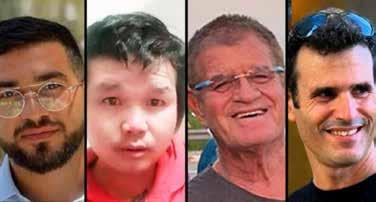
The Hostages and Missing Families Forum commented: “Alongside the sorrow and knowledge that the heart will never be whole, the return of Hadar brings some measure of solace to a family that has lived in agonising uncertainty for more than 11 years. We will not rest and will not stop until the last hostage is brought home.”
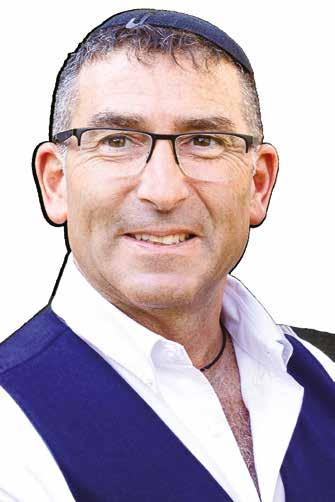
Goldin, 23 at the time of his death, is survived by his parents, a sister, and two brothers.
His father, Simcha Goldin, said in a statement: “Victory means bringing home the hostages and bringing home our soldiers to Israel.”
Netanyahu and President Isaac Herzog had a picture Lt Goldin in their offices throughout the eleven years.
Netanyahu said: “I know the agony that his family’s been through, I know the longing for his return that united the people of Israel and today we’re united in bringing him finally to his parents, to his family, to a grave in Israel.”
Thousands of mourners attended the funeral of Staff Sgt. Itay Chen at Kiryat Shaul Military Cemetery in Tel Aviv after 760 days in Hamas captivity in Gaza.
A 19-year-old tank commander, Chen was killed near Nahal Oz with his crew from the 77th Battalion of the Armored Corps.
The funeral procession began at the Chen family home in Netanya.
Hostage survivor Matan Angrest, IDF Chiefs of Staff Herzi Halevi and Gadi Eizenkot, National Unity leaders Benny Gantz and Gadi Eizenkot, opposition leader Yair Lapid, former Prime Minister Ehud Olmert, and Maj. Gen. (res.) Yoav “Poli” Mordechai attended.
Herzog delivered a eulogy recalling Chen’s courage, values and devotion to the State of Israel.
Israel’s president said the “mission” was not complete until all of Israel’s heroes had returned for burial.
Regarding Chen, he said: “We learned what strength of character you had, even at such a young age. What a sense of mission, what faith in the justice of our cause.”
Addressing the Chen family, he said: “When the bitter news came, you made a difficult, painful decision, not to sit shiva until Itay returned home. You continued your global mission to bring him back. Rubi, together with Hagit, you led an extraordinary, almost unimaginable campaign, across the world, at every level of diplomacy and leadership.”
Herzog added that US President Donald Trump’s leadership, together with his team, brought Chen’s return and that of other hostages.
Herzog again called for a State Commission of Inquiry, noting: “Only an independent, professional, and comprehensive inquiry can provide the answers that the Chen family and so many Israelis have asked themselves every day since October 7.”
He also appealed for unity: “It cannot be that after two years of war and more than two thousand dead, we are back to the same divisions, the same polarisation, as if nothing was learned. We must heal and unite.”
Rehovot
Tel
Tel Mond
Zichron Yaakov

BY DAVID SAFFER
Prime Minister Benjamin Netanyahu is against setting up a State Commission of Inquiry into Hamas’ October 7 terror attack.
Opposition MKs and bereaved families criticised Netanyahu’s stance during a ‘40 signatures’ Knesset debate on Monday as a “red line” and vowed to keep fighting for an inquiry.
Netanyahu’s critics have demanded the formation of an inquiry throughout the Gaza campaign.
Israel’s leader told MKs the key issue was “not only who is being investigated, but who investigates the truth.”
Netanyahu added that the inquiry was backed by half the public so lacked validation.
“We want to establish a commission that will have the broadest possible public support,” he said. “Not one that half the nation rejects or believes is rigged in advance.”
Coalition MKs applauded, the ‘October Council’, a group representing bereaved families turned their backs on Netanyahu in protest.
Opposition leader Yair Lapid accused Netanyahu of evading responsibility.
“Each scandal replaces the last, all to make us forget October 7,” he said.
Israel Beytenu leader Avigdor Lieberman said Netanyahu was “personally responsible” for the 10/7 massacre and
a future government would establish “a true state commission of inquiry” that would “investigate everyone and issue personal recommendations”.
Netanyahu was attending his second ‘40 signatures’ debate. Last March, he spoke briefly.
The October Council released a statement stating Netanyahu had “crossed a red line” and announced a rally for Saturday night at Tel Aviv’s Habima Square demanding a state commission.
“The days of political spin instead of answers are over, we will fight for the truth as our loved ones fought for their lives,” they noted.
multidisciplinary and integrative” commission of inquiry to investigate failures.
The 14-member committee, headed by retired Maj. Gen. Sami Turgeman, identified failures in understanding Hamas’ intentions, the Jericho Wall defence plan, organisational and operational culture, and poor decision-making on the night of the attack.
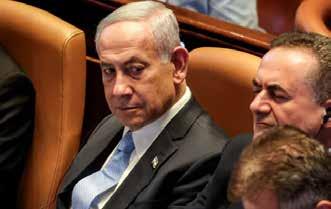
Netanyahu has reportedly been looking at ways to amend existing legislation, promoting a private bill or forming a governmental inquiry committee with similar powers.
Earlier this week IDF Chief of Staff Lt. Gen. Eyal Zamir presented findings into internal investigations into the 10/7 atrocity.
Zamir backs an “external, systemwide,
For over 120 years JNF UK has worked tirelessly to develop the Land of Israel.
Much of our work has only been possible thanks to the generosity of our legacy donors like Marie, who regarded the work of JNF UK as vital to realising the Zionist dream.
Leaving a gift in your Will, no matter how small or large, is one of the most valuable ways you can forge an everlasting bond with Israel.
Our professional and caring Legacy Team offer a range of professional services and first-rate pastoral care.
To find out more, please get in touch: Call: 020 8732 6101
Criticising the IDF’s assessment of an ensuing attack situation on October 6, the report observed: “In the critical hours before the assault, not a single significant operational action was taken.”
The committee praised female field observers of the Combat Intelligence Collection Corps who reported “professionally until their last moments”.
Intelligence could have exposed Hamas’ activity in the months before the war if properly analysed.
The report praised civilian security coordinators and rapid-response teams in Gaza border communities to protect residents. Many died.
The Nova music festival massacre illustrated failures in coordination between the army and police.
Zamir accepted all recommendations. Maj. Gen. Tamir Yadai, will oversee a multi year plan including early warning signals for war top of priorities.
“We are investigating a tremendous failure, one that cost human lives, that touched countless families who lost what was most precious to them,” Zamir said. “Our responsibility is not to blur or conceal this failure, but to look it straight in the eye and learn from it.”
Zamir added that the IDF had shown resilience since the attack, fighting “a multi-front war with courage and determination.”
Many commanders caught unprepared had risen to “lead their forces to extraordinary achievements”.
“Today, we conclude the phase of the October 7 inquiries within the IDF,” he said. “We have turned over every stone to understand what happened and why. From here, we move forward toward implementation, correction and growth.”
“From the pain, and from the battles we are still fighting today, we will build resilience and renewal for the day after,” Zamir added. “From the rupture, we will secure a safer future for the people of Israel. And out of responsibility, we will continue to be an army that defends the nation and ensures its existence.”
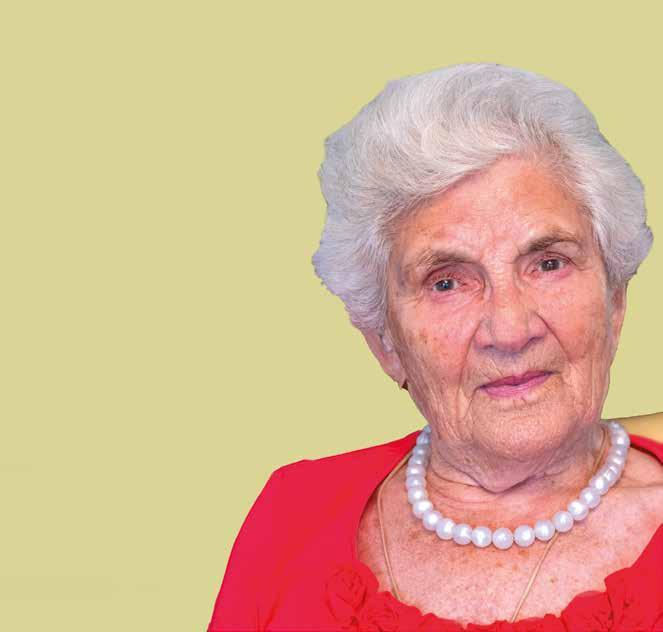
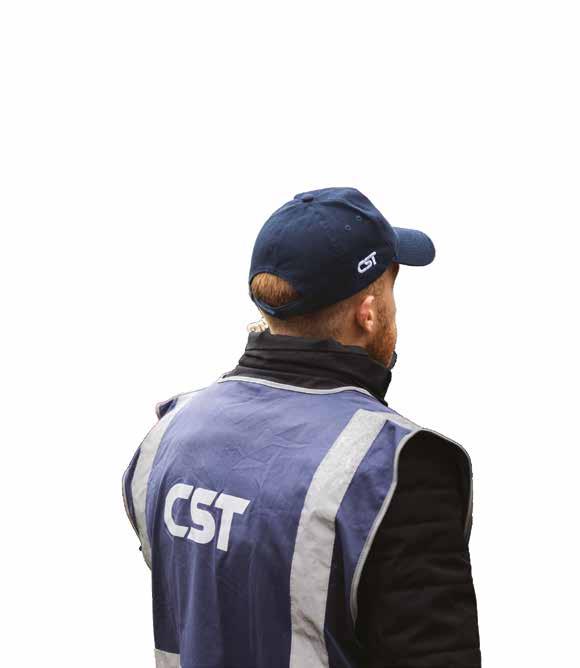
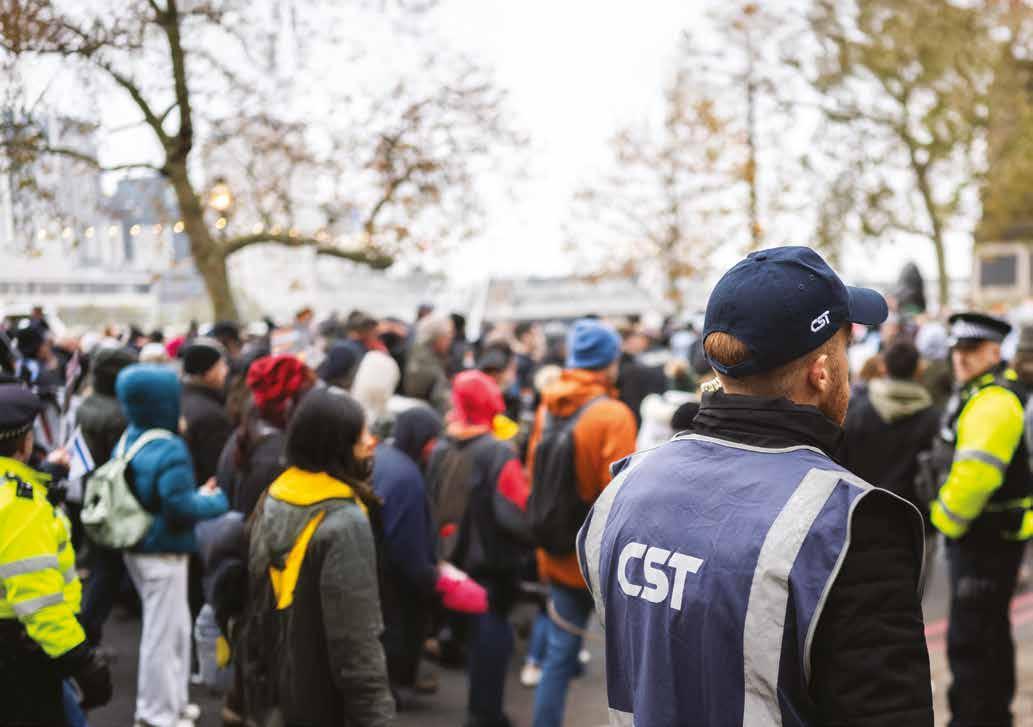
In recent years, CST has invested millions of pounds to strengthen security at Jewish schools, synagogues and other communal buildings. We have thousands of highly-trained security volunteers. We commit to protect our community, making it stronger in this crucial time of need.
The demand for our vital work is greater than ever. Stand with CST as we stand with you.
Please donate: Scan the QR code or visit cst.org.uk/together
Over 250 people joined the event, both in person and online, to hear keynote speaker Dr Kai-Keen Shiu, Consultant Medical Oncologist at UCLH specialising in gastrointestinal cancers, explore the question: Bowel Cancer - Nature or Nurture? Dr Shiu discussed the dramatic rise in bowel cancer, including among younger people, and highlighted the important signs and symptoms to look
room, face to face” as he introduced Dr Shiu’s lecture.
In his presentation, Dr Shiu examined current bowel cancer trends, emphasising the worrying increase in diagnoses among younger people. He addressed early-warning signs and symptoms that everyone should be aware of and discussed practical lifestyle factors that can help reduce personal risk. Each day, around 120 people in the UK are diagnosed with bowel cancer especially in the younger age group. Rates of bowel cancer between ages 25-49 have gone up by 52% since the early 1990s.
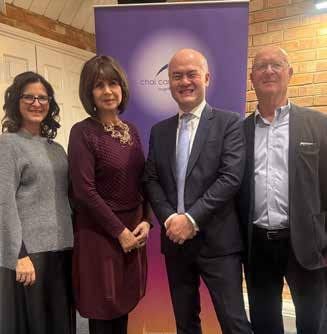
out for as well as what can be done to reduce risk.
This annual lecture is dedicated to the memory of Natalie z”l, daughter of Susan Shipman, Chai’s Founder President, who was one of the catalysts that inspired Chai’s inception over thirty-five years ago. Diagnosed with cancer at just two years old, she sadly passed away shortly before her eighth birthday.
Chai Chairman Louise Hager welcomed participants and shared updates from the past year. She said: “This is the first in-person Natalie Shipman Memorial Lecture we have held since Covid. During Covid, the lecture was held online and this year marks the first time we’re presenting it both, in-person and online. The advantage of hosting this as a hybrid event is that people can join us from all over the world – across Europe, the USA, Canada and especially from Israel. We are currently supporting 4,170 cancer patients and their loved ones, aged 3 to 99. This year 1,068 new clients have turned to Chai. We wish there wasn’t the need for Chai’s support but whilst there is, we are here with the most incredible dedicated and committed team who are passionate and driven to do whatever they can to help everyone who turns to us.”
Dr Adrian Tookman, Chairman of Chai’s Medical Advisory Panel (MAP), who has been involved with Chai for 32 years, noted that he first worked with Dr Kai-Keen Shiu in 2007, “We go back a long way,” he remarked - adding that it felt “so good to have people back in the
He said: “We’re really worried now because we’re seeing younger patients. It’s not right. Something is very very wrong and it’s not clearly genetically driven.”
Dr Shiu highlighted the critical importance of early detection awareness, explaining that “It is one of the most preventable cancers in the world. At Stage 1, Stage 2, Stage 3 that’s still curative which is really important.”
He also explored ongoing research efforts aimed at understanding why bowel cancer rates are rising, particularly in those under fifty, and shared insights into scientific advances and the expanding role of clinical trials.
Immunotherapy trials led by Dr Shiu have shown that just nine weeks of immunotherapy can bring Stage 4 bowel cancer patients into remission when used instead of chemotherapy. For patients with Stage 2 or 3 disease, nine weeks of immunotherapy prior to surgery is showing improved survival outcomes. In some cases, tumours can effectively ‘melt’ away - demonstrating the transformational potential of immunotherapy.
Dr Shiu also noted that a significant focus of current cancer research is on gut health and the microbiome. Evidence shows that drivers of early-onset bowel cancer are strongly linked to what we put in our body. Alcohol, sugar, fat, refined foods, grilling and frying foods, processed meat, synthetic dyes, MSG, titanium dioxide, corn syrup and smoking are all implicated. Poor diet and chemicals entering the gut can trigger bacterial activity that leads to DNA mutations and cancer is caused by mutations to DNA. He said: “The healthier the microbiome, the better protected we are.”
The lecture concluded with a lively Q&A and excellent feedback. One participant shared:
“Dr Shiu was outstanding, engaging and informative. He made a complex subject easy to understand, gave real insight into the science and reminded us how much we can do ourselves through awareness and prevention.”

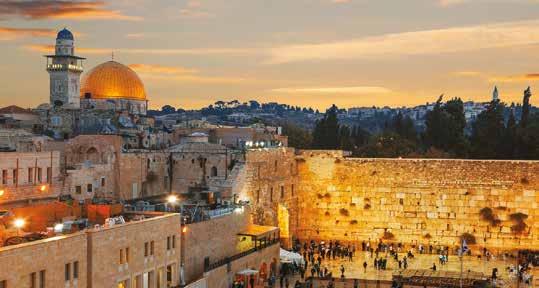



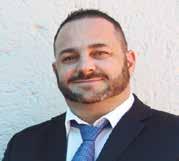
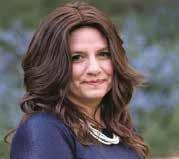

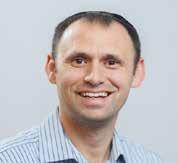
Last week, the Borehamwood Kollel celebrated the milestone achievement of the completion of their in-depth study of the Talmud’s tractate of Brochos, marked by a celebratory Siyum. The Jewish Weekly took this opportunity, shortly before the Kollel’s upcoming crowdfunding campaign, to learn more about the Kollel and its local impact.
In the centre of this leafy Hertfordshire suburb, a quietlyunassuming Beis Hamedrash (study hall) on Drayton Road is home to Europe’s largest community Kollel. The Kollel has established itself as an institution of high-level Jewish learning that is outward-facing, offering Jewish learning opportunities for the local community. Over 20% of Borehamwood’s population are Jewish and the Kollel is well-placed to serve them, situated on the high street where Jewish shops and amenities are located.
really friendly and genuine and the mutual sense of aspiration towards authentic growth has allowed a rich relationships to develop.”
children and join our simchos. They have created a new structure for growth in Torah and Yiddishkeit locally.”
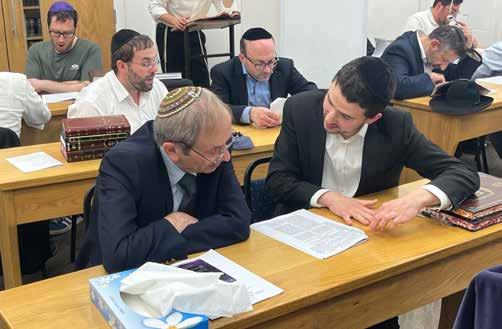
The Director of Education, Rabbi Bazak and Director of Community Engagement, Rabbi Burman said:
Jonny Stankler noted how the Kollel provides chizuk not only in Torah but in other areas of Yiddishkeit: “We have gone through a lot over the last few years. We acutely feel the brunt of what’s happening in Israel and feel vulnerable in England. The Kollel keep us on the straight and narrow by reminding us what it means to be an authentic Jew with authentic Judaism. This takes the stress out of everyday life, shows us where we are really up to and how our relationship with Hashem can change everything, which is a great comfort.
huge impact. We feel safer in the knowledge that there are a group of committed young families who are helping the community do what’s right in the eyes of Hashem. This can only be for the benefit of the community! They’re engaged with all ages – I attend lots of community bar mitzvas and weddings and guess what, there’s someone from the Kollel there who they’ve been close to in the lead-up to those events! They’re genuinely making an effort to integrate, support existing community infrastructure, reach out and educate the community in every aspect.”
Paul Deacon lives in Elstree and learns regularly in Kollel, reflecting on the impact the Kollel has had locally he remarked: “There are two different kinds of Borehamwood. One before the Kollel and the one after it came. The impact is immeasurable and there is no question that it provides a key spiritual and physical heartbeat for our community. Its continued future and growth are essential for the future success of the wider community in Borehamwood and Elstree.”
Alongside their full-day learning schedule, members of the Kollel tutor in one-to-one study sessions; teach at the local shuls and school and provide home groups and topical sessions on matters relating to Torah and authentically lived Judaism in the contemporary world for both men, women and children.
Now, six years after later, we spoke to members of the Kollel and local community to hear about the Kollel, its daily schedule, activities and recent developments.
Rosh Kollel, Rabbi Yehuda Boruch Lieberman is no stranger to communal leadership. A founder of the Edgware Kollel over 20 years ago, he has guided and developed countless Avreichim both in and outside the walls of the Beis Hamedrash. 6 years ago, he was approached by Dayan Chanoch Ehrentreu zt”l to lead this new and ambitious initiative.
The Head of the Kollel, Rabbi Yehuda Boruch Lieberman said:
“As a Kollel, our goal is to deepen meaningful Torah study both quantitatively and qualitatively. This is transformative for all involved. We aim to provide insightful Torah learning experiences for all members of the community. Different people engage in different ways, for some Jewish philosophy is key, others enjoy the intellectual challenge of Talmudic study and whilst some will focus on concepts others look to the details. The main thing is that their experience is interesting and appropriate for each individual, wherever they are up to in their Jewish journey.
“The Borehamwood community is
“The Kollel are currently involved in 19 weekly learning initiatives for men, women and children locally. This is aside from over 70 weekly study partnerships with community members and a strong Shabbos programming for women and children.
“There are weekly study groups delivered in Yavneh College by men and women from the Kollel which take place before and after school and at a 6th Form Lunch-and-Learn. This kind of exposure to Torah and young people who are thriving in their Yiddishkeit is transformative for young adults.
“The time spent in the Kollel prepares our scholars for their next steps. Although the Kollel is relatively young, 13 of our alumni are already operating in Jewish schools and institutions throughout North West London, with a number ofthem in positions of senior leadership.”
To hear more from the local community about their perception of the Kollel and its impact, we spoke with a number of community members.
Michael Firestone, originally from Glasgow, has been attending Kollel learning sessions since its founding. Last year, he celebrated his own completion of the Talmud with the Kollel’s Daf Hayomi chabura. He noted that “the impact of the Kollel is remarkable because it is creating an accessible Torah centre for both adults and youth where they can come to learn day and night. The difference I see in the community since the start of the Kollel is amazing! It’s no exaggeration to say that it has changed my life together with my family. The Avreichim learn with my
“It’s hard to put a finger on it, but there’s an aura of spirituality around Borehamwood now that wasn’t here before and the Kollel’s presence has made a
The Kollel will be embarking on its ambitious crowdfunding campaign this Sunday-Monday to support their daily operations. For more information and to donate, please visit: http://www.charityextra.com/bwkollel.
S&P Senior Rabbi Joseph Dweck will be taking on a new role at LSJS (the London School of Jewish Studies), further to his aliya in January 2026. He has been the Deputy President of LSJS during his time as the Senior Rabbi of the UK Spanish & Portuguese community for the past 11 years.
Rabbi Dweck has been appointed as the Rabbi Levy Chair of Jewish Wisdom and will continue to teach at the college, both online and occasionally in person. Rabbi Dr Abraham Levy OBE was his predecessor at the S&P community and at LSJS and a much-loved Anglo-Jewish thinker and leader.
Rabbi Dweck’s inaugural lecture in his new role is entitled It Was Meant to Be! - Can Divine Providence be found in every aspect of our lives?, whereby he cites Maimonides’ argument that the concept of Divine Providence is less about determinism and more about an ongoing relationship. The special talk in November also explores the concepts of faith, fate and the meaning we find in the stories of our lives.
Amir and Rabbanit Tova Ellituv will be the new spiritual heads of the S&P Sephardi Community in London and the senior rabbinic couple for Lauderdale Road Synagogue. They will be
starting their new roles in January 2026.
“It has been such a privilege to have had the opportunity to teach and contribute to LSJS and I look forward to continue teaching and engaging with such a high-level institution,” said Rabbi Dweck.
“We are tremendously grateful for all Rabbi Dweck’s exceptional dedication to LSJS over the years and for his insightful teaching,” said Joanne Greenaway, Chief Executive of LSJS. “He has been a remarkable asset to the UK Jewish community and we are so glad that he will continue to remain an invaluable asset to our college.”
For more information please email lsjsadmin@lsjs.ac.uk or call 020 8203 6427
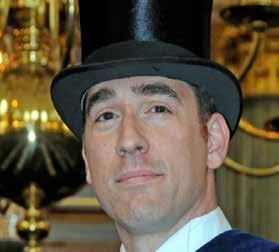

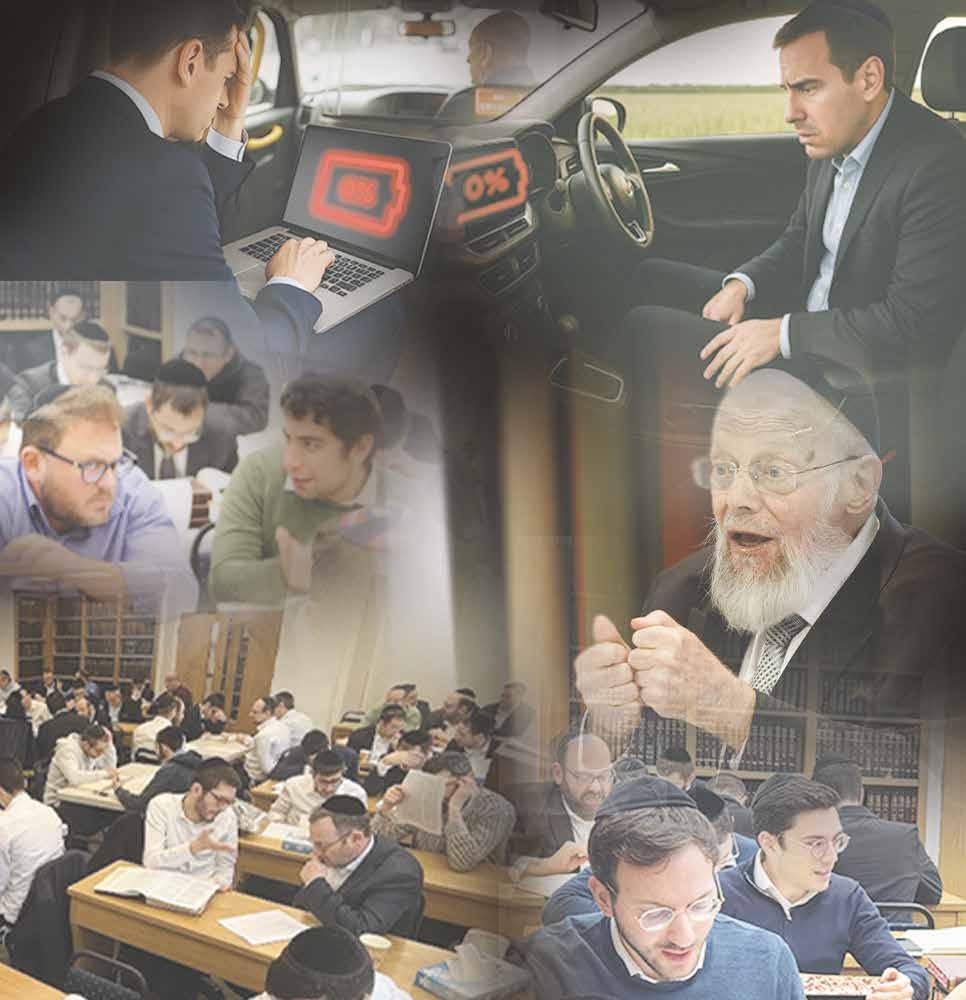




Parties of 4 to 100 people in the restaurant, The whole restaurant can be booked for your exclusive use, or we will deliver food to your venue.
“Eating at Kaifeng is always a special experience unmatched in a Glatt Kosher restaurant anywhere. The food is always delicious and you know that it was made with the finest and highest quality ingredients and above all it was just cooked moments before, specially for you!
Rabbi Akiva Osher Padwa
“The best kosher restaurant in the world” Tripadvisor review
“One of North London’s more consistent and interesting culinary success stories: Hendon’s kosher Chinese restaurant “continues to operate at a very high standard”, with “tasty and authentic cooking” and “a great ambience” Hardens 2024
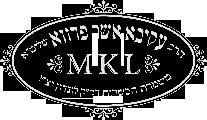
Glatt Kosher Le Mahadrin under the strict supervision of the London Beth Din and Rabbi Akiva Osher Padwa
Ask about
*Extra special value Sunday Lunch Simchas*
The Place for a Simcha
Sunday to Thursday lunch menu at Take Away prices!
Kaifeng Gift Vouchers are the present of good taste
Shabbos meals blast chilled and delivered every Thursday evening

51 Church Road, Hendon NW4 4DU Reservations: 020 8203 7888 www.kaifeng.co.uk
Open Sunday to Thursday: Lunch 12.30 - 2.30pm, Dinner 5.30 - 10.30pm, Motzei Shabbat: September - Pesach

Raymond James, Golders Green together with Melinek Fine invites you to explore the outcomes of the Autumn budget and its impact on you.
16:00 – Wednesday 3rd December 2025 | Golders Green, London
For more information, call 020 8202 1944 or email us at GoldersGreen@RaymondJames.com
Visit our website at GoldersGreen.RaymondJames.uk.com or scan the QR code to register.
With investing, your capital is at risk. Tax treatments are subject to individual circumstances and are subject to change.


BY RABBI NAFTALI SCHIFF
“Please, please - I beg of all of you. We must get the upper hand. Goodness has to be overwhelming in this world and put an end to hatred and misery.”
These words, spoken by Manfred Goldberg while standing before a mountain of shoes belonging to murdered victims at Stutthof concentration camp, just last year, captured the essence of his later life’s mission. I think that perhaps after having rebuilt his own family from the destruction of the Holocaust, he then turned outwards, viewing his own survival not as an accident of history, but as a calling to ensure that the light of goodness and indeed G-dliness outshines the darkness of hate and self absorption.
I had the privilege of spending many hours with Manfred and his dear wife, Shary, while producing the JRoots documentary “Manfred – From Nameless Number to Nation’s Pride.” We filmed in two places that perhaps defined his life’s journey: the horror of Stutthof and the holiness of Jerusalem. Manfred was a man of few words but profound action. On those occasions, as we stood amid the ruins of one and the rebirth of the other, I felt his soul ignite with emotion akin to a lifetime of humble self restraint breaking open into something hugely transcendental.
Manfred Goldberg was not only a survivor; he was a builder- of family, of community, and of moral clarity. Born in Kassel, Germany, in 1930, he witnessed his synagogue burn on Kristallnacht. Deported with his mother and brother to the Riga Ghetto, he experienced starvation and terror beyond imagination. Yet even there, a teacher named Herr Bacher taught him Torah and prepared him for a makeshift Bar Mitzvah. That moment, he would later recount, planted within him a spark that refused to die.
After enduring years of ghetto, camp,
and death marches, he was liberated by British forces in 1945. His little brother, Hermann, did not survive. But Manfred carried his memory and the memory of millions into a new life of meaning and purpose.
In time, he became one of Britain’s foremost Holocaust educators. Whether addressing royalty, politicians, or schoolchildren, he spoke not with bitterness but with gratitude and palpable dignity. When King Charles III awarded him an MBE, we joked that it stood for “Mensch of the British Empire.”
Just weeks before his passing, his community at Hendon Adass honoured him with the rare title Chaver — meaning friend or literally- “one who connects.” The word could not have been more apt.
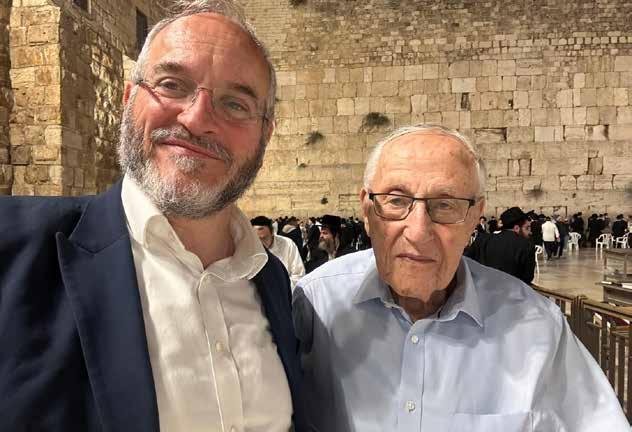
Manfred’s sons told me something beautiful and revealing: he always carried a little screwdriver in his pocket. “In case something needed fixing,” they said. And of course it always does! It was as if he understood his role in this world - one of tikkun- fixing, solving, repairing wherever he turned.
He applied his all to fixing whatever was broken not only in physical things, but between people. His natural instinct was to mend. He was pained deeply by the divisions he saw among the Jewish people. His calm, noble and unifying presence, his ability to relate to everyone from princes to porters, from chassidim to secular students, was itself a living act of tikkun. He built bridges with quiet dignity, respect, and sincerity.
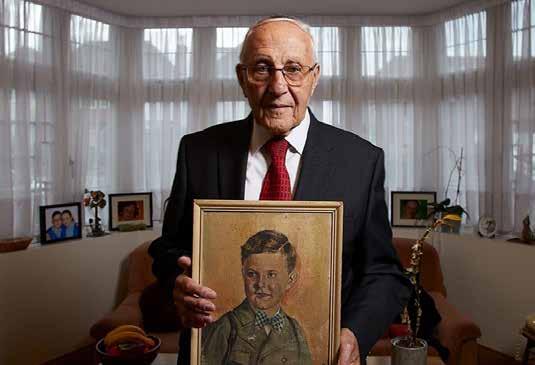
I saw this countless times. Once, on the way to speak at Edinburgh University, he received news of his dear friend and fellow survivor Zigi Shipper’s passing. Manfred had literally saved his life on the infamous Death March on the Baltic Coast towards the end of the war. One can only imagine the indelible bond the two shared. Manfred was visibly shaken on hearing the sad news. Momentarily he considered disembarking from the train in order to attend the funeral. However, almost immediately I felt his deep seated sense of duty kick in. He continued on the journey. That evening he stood before 400 students and spoke with strength and grace, determined that pain should never paralyse purpose. The standing ovation that followed said it all. Afterwards, he spent hours talking with students. Every question, every encounter, every young person mattered to him. At 93, he still carried that screwdriver of tikkun in his soul.
His humility was striking. He never sought honours, yet they found him. When asked how he could still believe after what he had seen, he would reply quietly, “There are things I will never understand. The Almighty I’m sure does. When he invited me to share the sad news of his terminal disease he expressed incredible clarity and steadfast faith- “ Naftali, I have total emunah. My feeling of thanks for a wonderful life is beyond words.”
Last year, on the rooftop of Aish overlooking the Kotel, a band below played Hatikvah. For the first time, I experienced his raw emotion. “I close my eyes,” he said, “and I can see the Beit HaMikdash ( Temple) before me. I feel close- truly close. Something has entered my heart today that I have never felt in all these 94 years.”
That was Manfred- a man who had every reason to turn away from faith and peoplehood, yet instead turned toward them. He was, in the truest sense, a Chaver - a friend of G-d and man. No doubt he found favour in both.
When I visited him on that occasion shortly before his passing, frail but clear-minded, he spoke only of faith and gratitude. “Naftali,” he said, “I have total trust in the Almighty. My time has come, whenever He is ready, I’m ready. Just keep doing what you are doing. The next generation must know who they are. The world needs them to stand up for goodness and justice. Keep going.”
That blessing was not for me alone. It was for all of us.
Manfred Goldberg fixed the world not only with tools or grandiose speeches, but with quiet goodness, integrity, and love. His screwdriver was a symbol of a deeper truth - that each of us, too, carries the ability and the responsibility to fix and to repair.
As we mourn his passing, may we pick up whatever tools with which each of us is blessed- literal or symbolic- and continue his work of tikkun: fixing what is broken, healing what is divided, and ensuring that, in his words, “goodness becomes overwhelming in this world.”
Yehi zichro baruch - may the memory of Hechover Reb Michoel ben Boruch, Manfred Goldberg ל״ז, forever be a blessing and a call to action for us all.
Rabbi Naftali Schiff is the Co- Founder- Director of JRoots and the Family of Jewish Futures. Executive Producer of JRoots documentary “Manfred- Nameless Number to Nation’s Pride”


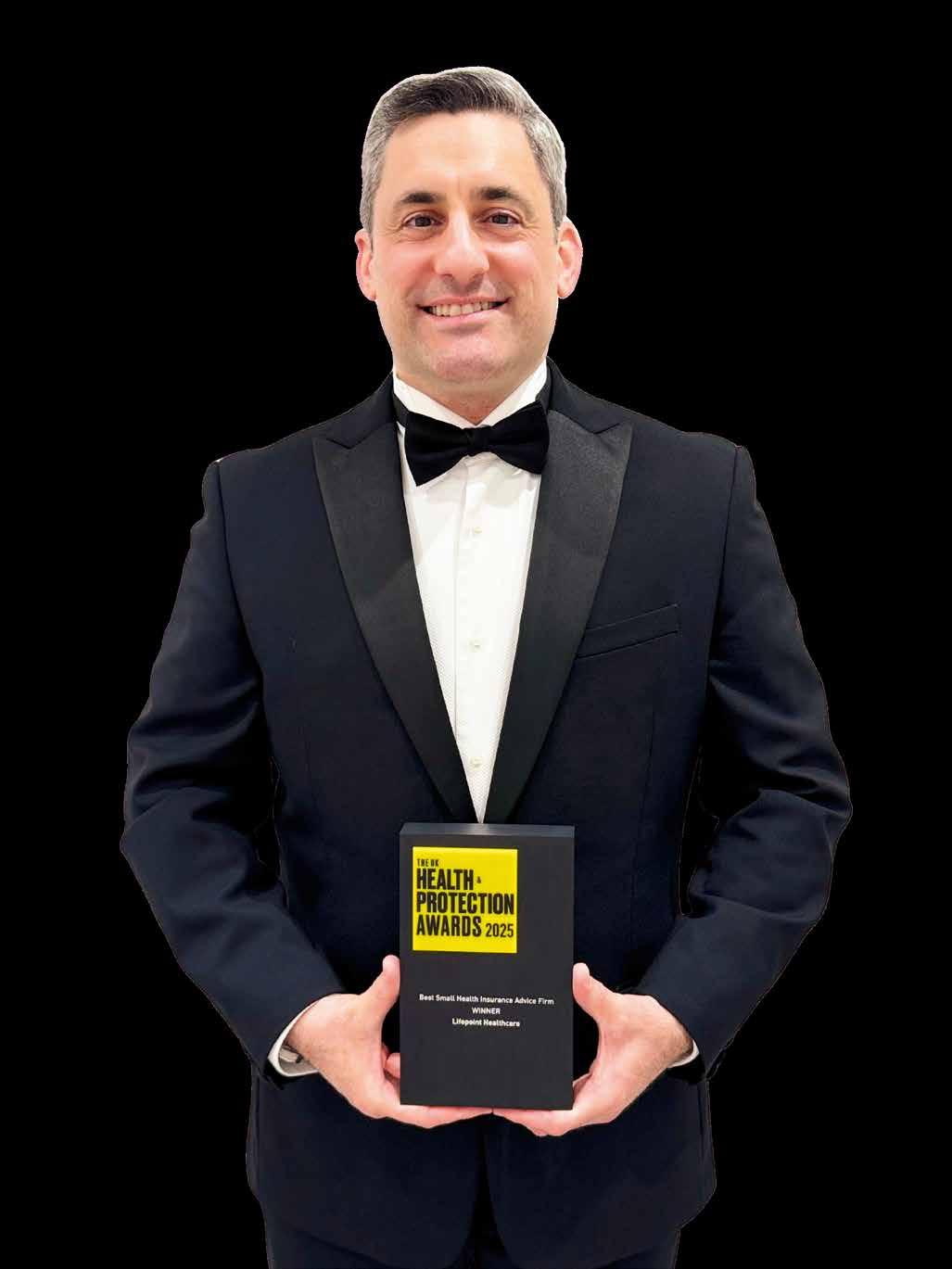
A powerful message of community, strength and self-care took centre stage at the Camp Simcha Ladies’ Lunch, as two of the UK’s leading beauty voices, Sarah Jossel, Sunday Times Style columnist and regular face on This Morning, and Deborah Joseph, writer, speaker and award-winning editor, came together for an informative and entertaining on-stage conversation about the importance of looking after yourself, even throughout life’s most challenging moments.
Welcoming almost 300 guests to Finchley United Synagogue for the eighth annual Ladies’ Lunch, the event, which was hosted by comedian Mark Maier, raised almost £100,000 in support of the charity’s vital work helping families with a seriously ill child.
This year held special significance, marking the charity’s 30th anniversary; Camp Simcha co-founder and Head of Family Liaison Rachely Plancey expressed her gratitude to everyone for their continued support and reflected on this remarkable milestone.
“If someone had told me that Camp Simcha would one day grow into a charity annually helping over 1,700 family members across the UK, families living with all sorts of complex medical conditions, I am
not sure we would have believed them.
“Sadly that need keeps increasing.”
Rachely noted a dramatic rise in the number of families turning to Camp Simcha over the last 12 months.
“We’ve had 107 family referrals since I stood here last year, a 20 per cent increase. That’s 107 families who reached out and trusted us to stand beside them when they needed it most.
“And while so much has changed over the last 30 years, our vision has not - that no Jewish family, anywhere in the UK, with a child affected by serious illness should have to cope without our support.”
Taking to the stage for an ‘in conversation’ session, dynamic beauty duo Deborah and Sarah shared their top tips on self-care.
They reflected how impactful initiatives like Camp Simcha’s Mums’ Spa Day and Wellbeing events are, with Sarah explaining:
“Where beauty feels so important in terms of what I do - and I know this relates to the Camp Simcha Mums’ Spa Day - is that moment of pampering.
“If someone is going through a rough time, book them a manicure or a massage because they can’t use their phones, they can’t sit going through the reality of what’s actually going on - they can actually have time out. It’s that side of beauty that is so important to me….
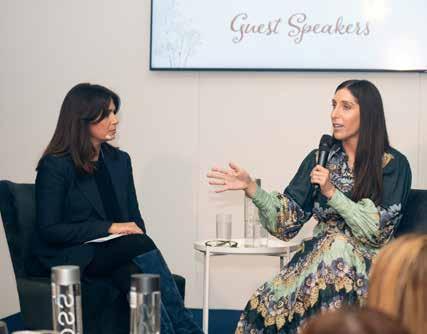
“Since being a beauty assistant all the way through to when I became Beauty Editor at Sunday Times Style and then Beauty
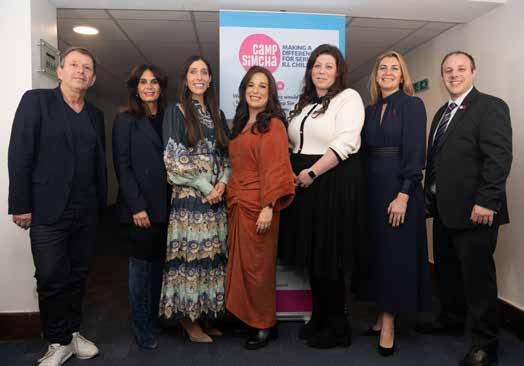
Director and now a columnist, I have kept that at the absolute forefront of everything I do.”
One of the most moving moments of the afternoon came when mum Louise Shuck shared her family’s story.
Her son Zack, now three, was diagnosed with a benign brain tumour at just six months old and had to endure 18 months of chemotherapy - an unimaginable challenge for anyone, let alone a baby.
With two other young children, Jake, seven, and Amalia, five, and while working as a teacher, Louise described how Camp Simcha became a vital lifeline when everything felt like it was falling apart.
“We don’t always feel brave. But we do keep going. Camp Simcha has helped us do that… Right now, Zack has finished his chemotherapy, and we are in a new phase of cautious hope.”
She spoke about how the charity’s support has been absolutely critical on their journey.
Perhaps most special of all have been the family retreats; a few days away that
allowed the Shuck family to reconnect, meet other families who truly understand their journey and to feel wrapped in support and joy.
“For once, we didn’t have to worry about hospitals, appointments, temperatures or having to rush off. We could just breathe. Our children could just be children, running around, laughing, enjoying all the activities, making friends and just feeling normal.
Louise also echoed the importance of having opportunities to focus on her own self-care, particularly the Camp Simcha Mums’ Spa Day… “Time to switch off, to breathe and to meet other mums who truly understand what this life is like.
“Camp Simcha is more than just a charity. They are a shining light in the darkest of tunnels. They’ve made us feel less alone, less overwhelmed and more hopeful. They show up again and again, not just for Zack but for all of us and in a journey like this, that means everything.”
The event was sponsored by committee chair Victoria Joseph and her husband Lance and organised by the charity’s Ladies’ Lunch committee.

Daniel Carmel-Brown, CEO of Jewish Care said: “We are saddened by the loss of Manfred Goldberg z’l, may his memory be a blessing. We wish Shary, and the whole family, long life.
A cherished member of Jewish Care’s Holocaust Survivor Centre, Manfred will be deeply missed by us all. His wisdom, kindness, generosity, eloquence and gentle spirit inspired us every day. He enriched every discussion with thoughtful insights and challenged our thinking. It was a profound honour to know Manfred - a true privilege to sit with him and learn from him. Manfred was a great teacher of life, and his example will continue to guide and inspire us. Manfred did everything in his power to spread the message of tolerance and respect for others, as well as support the Holocaust Survivors’ Centre in every way he could. His contributions to Holocaust
education are immeasurable, and the extraordinary legacy Manfred leaves behind, will continue to live on for generations to come.”
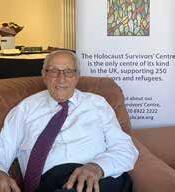
Saul Taylor, President of the United Synagogue, said: “Manfred z’l was a leader in Holocaust education, both within our community and outside. Over the years, as the number of Holocaust survivors has sadly diminished, his voice became even more important in a world where antisemitism has reared its head once again. He spoke regularly in United Synagogue shuls and I remember the clarity he had about what happened to him in the Holocaust and his effortless ability to recall details and tell his story. He had audiences spellbound and he worked tirelessly sharing his testimony with thousands of people. Everyone at the United Synagogue wishes Manfred’s family Chayim aruchim, long life.”
Families in Borehamwood enjoyed a creative and engaging afternoon at SEED with Emily Ben-Ze’ev from Emily’s Adventures in Wonderland. The session focused on the theme of Creation of the World, bringing the story of Bereishit to life through a range of hands-on activities.
Children delighted in making constellation viewers, crafting rainbow spinners, and exploring interactive bird-themed projects, all designed to inspire wonder and curiosity about the natural world.
The event was generously sponsored by Emily
Ben-Ze’ev in memory of her mother, Suzanne Kushner, to mark her first Yahrzeit.

Menorah Foundation School is changing their approach to learning, with many new and exciting developments aimed at enriching children’s education and preparing them for the future; in the classroom, through practical life skills and beyond primary school.
At the forefront of these innovations is a pioneering approach to early education that is already transforming how the school’s youngest pupils learn and thrive.
In Key Stage 1, Menorah Foundation School has introduced a Continuous Provision model, known to pupils as “COOL Time” (Choose Our Own Learning). While this research-based approach is widely used in early years settings, only a small number of primary schools have extended it into Key Stage 1 making Menorah Foundation something of a trailblazer.
COOL Time allows children to access a range of carefully planned learning opportunities independently throughout the day, with skilled teachers guiding and supporting as needed. The approach encourages curiosity, independence and deep engagement, all key qualities in successful learners.
The impact has been significant. Pupils are thriving in this more fluid, choicebased environment, showing clear gains in confidence, communication and problem-solving. The approach has even drawn praise from Barnet education specialists, who upon visiting the school have commended its commitment to evidence-based, child-centered practice.
“Our Year 1 and Year 2 pupils are thriving,” said Mrs Hunter, Headteacher. “They’re more engaged, more curious and more willing to take ownership of their learning. This isn’t just theory, we see the impact every day in how our children approach tasks, collaborate with their peers and talk about what they’re learning.”
Alongside this innovation in the classroom, the school has also unveiled a brand new Children’s Kitchen, a vibrant, purpose-built space where pupils learn fundamental cooking skills as part of a dedicated food and nutrition curriculum.
From chopping and measuring to baking sweet treats for the chagim, the kitchen has quickly become a favourite lesson for the students.
“We’ve seen so much enthusiasm,” said Miss Fox who is leading this initiative. “Children are learning not just how to cook, but how to work together, follow instructions and understand the nutritional impact food has on their daily lives. And when it’s time to mark the Chagim, there’s nothing more joyful than seeing pupils take pride in preparing something special.”
To further equip pupils with the skills they’ll need in a technology-driven world, Menorah Foundation has just opened a fully refurbished Computing Room. The new facility features the latest digital tools to support a modern IT curriculum, enabling pupils to explore coding, digital communication and online safety in an engaging, hands-on way.
All the staff across the school agree that these developments are not just about updating facilities or testing new trends, they’re part of a broader vision to empower children with meaningful skills and a love of learning that lasts long after leaving Menorah Foundation.
Whether it’s through choice-based exploration in COOL Time, hands-on learning in the kitchen, or website building in computing, Menorah Foundation School is investing deeply in its pupils’ future and setting a powerful example of what forward-thinking primary education can look like.
Admissions for 2026/2027 are now open. If you are interested in finding out more about Menorah Foundation or would like to arrange a visit, please contact admissions@ menorahfoundation. co.uk.





TUE, 18TH NOV @ 18:30 GMT
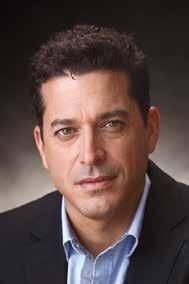
Join the NJA for an in-depth conversation with Amichai Chikli, Israel’s Minister of Diaspora Affairs and Combating Antisemitism, who was credited with inviting Robinson. Together, we’ll explore the political motives, ideological dynamics, and international reactions surrounding this headline-making invite


BY DEBBIE GOLDFISCHER
Zohran Mamdani’s historic victory as New York City’s first Muslim mayor marks far more than a political shift — it’s a wake-up call for Jews worldwide. In a city once defined by its Jewish strength and support for Israel, voters have chosen a leader who embraces BDS and rejects Israel’s legitimacy as a Jewish state. His victory, coupled with rising global antisemitism since October 7 and New York’s declining real-estate confidence, underscores a profound turning point. As trust in diaspora institutions weakens, Israel stands out as the only place where Jewish identity, security, and financial investment converge.
Late Wednesday night, 33-year-old Zohran Mamdani, a Queens assemblyman, made history as New York City’s first Muslim and South Asian mayor, winning just over 50% of the vote against Andrew Cuomo and Curtis Sliwa. For most New Yorkers, this is a political milestone. But for the majority of Jews, especially those who appreciate New York’s deep ties to Israel, it lands very differently. Mamdani has built his career on harsh criticism of Israel, rejecting its identity as a Jewish state and openly supporting the BDS movement — a dramatic shift for a city long seen as the center of American Jewish life.
His victory is not a local footnote. It signals a profound change in values, alliances, and the sense of security many Jews once felt in New York. In a city so intertwined with Jewish philanthropy, communal identity, and investment in local real estate, this election carries implications that reach far beyond politics — touching questions of safety, belonging, and where Jewish energy and capital will flow next.
Here are five reasons why Mamdani’s victory is deeply relevant for Israel’s real estate market:
New York, once the proud epicenter of Jewish life, has now elected a mayor who openly aligns with movements that delegitimize the Jewish state and excuse terror as “resistance.” What was once fringe campus rhetoric now sits in City Hall — a stark sign of how far parts of the American left have drifted. For many Jews, Mamdani’s win represents a deep erosion of the values that once made New York feel like a natural and safe home. Since October 7, antisemitism has surged across the Western world, and his victory feels connected to a broader cultural moment in which Israel is demonized and Jewish security feels threatened. And this shift has direct implications for Israel. When Jewish communities sense that the ground beneath them is no longer stable, they turn toward the one
place where their identity and future are firmly in their hands: Israel. Mamdani’s election is yet another reminder that, for many Jews, Israel is more than a homeland; it is a refuge. In that climate, owning a home in Israel has never felt more urgent, more meaningful, or more necessary.
For decades, New York City was one of the safest and most comfortable places in the world for Jews, with major politicians across both parties reliably supportive of Israel. That sense of stability has now been shaken: Mamdani’s election, built on harsh criticism of Israel and open support for BDS, signals a profound shift in a city long seen as the world’s most significant Jewish center outside Israel. For many, it confirms that the political climate in New York has changed, and not in a direction that makes Jewish communities feel protected or represented.
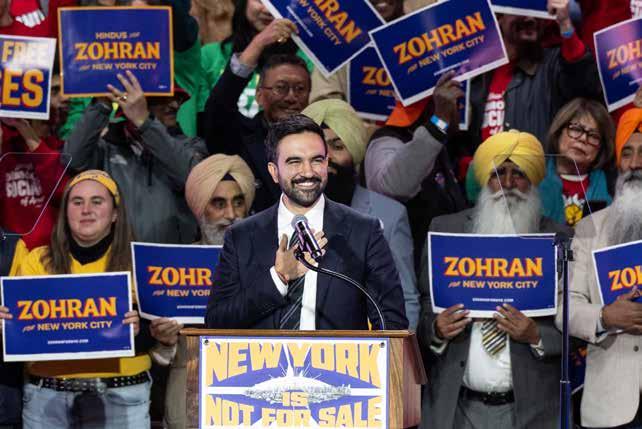
And where will their energy, talent, and investment go? Increasingly toward Israel, a country that still values entrepreneurship, development, and growth. Its construction boom offers not only emotional grounding but also stability and significant financial opportunity.
His economic agenda deepens that concern. Higher taxes on property owners, stricter rent regulations, and aggressive redistribution threaten the very residents and developers who have built and sustained New York’s growth. The combination of ideological hostility toward Israel and punitive economic policy will drive families, professionals, and businesses to reconsider their future in the city. While some will head to other U.S. states, for many Jews, the natural destination will be Israel.
Jewish developers and landlords have shaped a significant share of New York’s modern skyline, from major commercial towers in Manhattan to multifamily portfolios across the boroughs, their firms have long been central to the city’s real-estate market. Mamdani’s worldview strikes directly at that foundation: his housing agenda, framed as “justice,” calls for rent freezes, tax hikes, and heavy regulation. Under his administration, landlords are likely to face heightened scrutiny, developers increased red tape, and private capital cast in a negative light.
The irony is stark. The very community that helped build New York’s prosperity now feels pushed aside by a climate hostile to real estate developers and owners.
For decades, billions of dollars have flowed from New York’s Jewish philanthropies and family offices to Israeli hospitals, universities, and community projects. One of the most troubling elements of Mamdani’s record is his support for policies that directly target pro-Israel and Zionist organizations. As a state assemblyman, he even sponsored legislation to revoke nonprofit status from groups tied to Israeli settlement activity — a move that, if echoed in city policy, could chill Jewish philanthropy across New York. Under a leadership that embraces these values, donors may reconsider keeping significant capital in the city.
Whilst a mayor cannot control international finance, he can shape the city’s tax climate, funding priorities, and institutional culture. If City Hall pressures banks, foundations, or community groups over their ties to Israel, the response will be simple: capital will move toward Israel, not away from it. And in Israel, that capital builds homes, creates jobs, and strengthens communities — a far more stable and welcoming destination for long-term investment.
Even before ideology entered the picture, New York’s real-estate market was
already losing momentum. High taxes, rising crime, homelessness, and endless bureaucracy have pushed investors away in recent years, and Mamdani’s policies will only accelerate that decline. Israel tells a different story entirely. Despite security, economic, and geopolitical challenges, its property market continues to show resilience and confidence, from Tel Aviv’s booming business districts to Jerusalem’s renewal projects and the rapid growth of coastal cities like Netanya and Ashkelon. While New York, under Zohran Mamdani, enters a period of uncertainty, Israel moves forward with clarity and strength. For many Jews, the message is unmistakable: the tides are turning, and those who want to live, build, and invest in their own land are increasingly looking toward Israel.
Debbie Goldfischer is the founder and CEO of Buyitinisrael and host of the Israel Real Estate Podcast: On The House. A prominent figure in Israeli real estate since 2004, Debbie has spent the past two decades helping foreign buyers successfully navigate the property market in Israel. In 2020, recognizing the lack of reliable English-language resources, she launched Buyitinisrael.com, which has quickly become the leading platform for English speakers looking to buy property in Israel. In addition to leading the platform, Debbie personally assists buyers in finding the right property—whether new or resale—anywhere in Israel.
To get in touch, email debbie@ buyitinisrael.com.
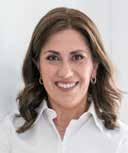
World Mizrachi Led the Charge in Ensuring a Broad Agreement in the World Zionist Organization World Mizrachi has led the process to secure an agreement that will now pave the way for a new organizational coalition for the World Zionist Organization, with the goal of ensuring representation from a broad range of diverse parties and streams.
As part of the agreement, Rabbi Doron Perez, Executive Chairman of World Mizrachi, will serve as a full-term President of the World Zionist Organization, part of a series of measures designed to ensure increased unity and welcome the involvement of voices from all across the Jewish world. World Mizrachi also welcomed the appointments of Gael Grunewald as Deputy Chairman of the World Zionist Organization and Head of the Department of Education, and Roi Abecassis as Deputy Chairman of Keren Kayemeth LeYisrael (KKL) and Head of the Department for Zionist Jewish Identity .
World Mizrachi expressed its appreciation to all the coalition parties and called on all to continue to work together in that spirit of unity to jointly advance the interests of the Jewish nation and State of Israel.

The agreement reached represents a commitment to national responsibility and a goal of creating broad partnerships to confront a growing array of challenges in Israel and across the Diaspora.
“The modern Zionist movement was born out of the very idea of the ingathering of people from all over the world to create a united Jewish nation in our ancient homeland. Specifically in these moments where there are many unprecedented challenges and areas of legitimate debate within our broader Jewish community, we have proven that we are willing and able to put the best interests of the greater Jewish world at the forefront and recognize that love of our people and our covenant of fate must come before anything else,” Rabbi Perez said. “World Mizrachi is deeply proud and grateful to be a significant part of the WZO’s leadership in this period where partnership, mutual trust and respect as well as a sense of national responsibility are so critical in confronting the many challenges we face. We may indeed be the smallest of nations but we are the largest family.”
World Mizrachi CEO Rabbi Danny Mirvis congratulated Rabbi Perez saying: “This appointment is wonderful news for
the Jewish world. Rav Doron Perez will bring a much-needed voice of leadership, vision and collaboration to the Zionist movement at a crucial hour in Israel’s history. This is one of many great achievements by Mizrachi in the coalition agreement. These have been made possible


by the support of tens of thousands of Mizrachi voters in elections around the world, Mizrachi’s reputation as a trusted bridge-builder, and broad recognition of Rav Doron Perez’s personal outstanding leadership qualities.”





















A free valuation from our in house gemmologist and gold experts on anything you may wish to sell. If you are thinking of selling, we purchase all Diamonds in any shape, size, clarity or colour. WE PAY MORE than all our competitors. Try us, and you will not be disappointed!
10 nights 31 March - Friday 10 April • 12 nights 31 March - Sunday 12 April

Exclusive Resort & Spa: Indoor/outdoor pools, beachfront location, expansive grounds, and spacious public areas.
Boutique Atmosphere: Only 115 rooms Sea View, Mini Suites, Private Pools, program capped at 350 guests, entire hotel exclusively for Kosher Travelers
Culinary Excellence: Elegant dining, gourmet meals, lavish Kiddush, and all day refreshments & snack bar.
Kashrut: Glatt Mehadrin, Non-Gebrochts, No Kitniyot. Private, family, & communal Seder options.
Inspiring Program: Engaging presentations by R’ Jamie and Ilana Cowland, Meira K, Effi Kolatch & more.
Entertainment & Activities: Live music, entertainment for all ages, kids and teens sports/activities, wellness centre & spa.
Prime Location & Access: Athens or Kalamata airports, free Wi-Fi & parking, local attractions, optional day tours & transfers. Charming Nafplio: Complimentary transfers 20 min to Greece’s most beautiful and historic city.

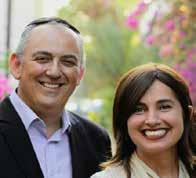
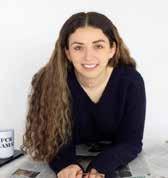
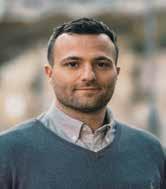
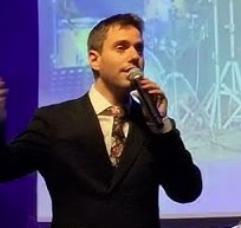
Rabbi Jamie & Ilana Cowland, Meira K, Effi Kolatch, Chai Parnes, Musical Maestro Yossi Shwartz, Daniel Harel, & more!
PRICE STARTS from 2950€ Per Person *double occupancy
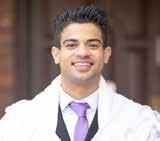





Please note: The views of the letters do not necessarily reflect the views of this newspaper. Letters may be edited and publication is at the discretion of the editor.
Dear Editor,
Action Against Discrimination (AAD) welcomes the resignations of both the BBC’s Director General and News CEO — a move that is long overdue.
For years, the BBC has displayed a consistent anti-Israel bias, most recently through its coverage since 7 October 2023. Its reporting, particularly by Jeremy Bowen, its Arabic service, and its recent Gaza documentary (heavily criticised by OFCOM), has been nothing short of disgraceful — an insult both to the State of Israel and to the UK Jewish community.
The ongoing campaigning and pressure from our community have clearly had
an impact, and these resignations are a direct result. The Director General’s unwavering defence of Gary Lineker, despite his repeated anti-Israel and antisemitic remarks, was deeply misguided. Their departures are therefore both justified and necessary.
The BBC’s anti-Israel slant has not only distorted public understanding but has undoubtedly contributed to the alarming rise in antisemitism across the UK. Many within the Jewish community have, understandably, refused to renew their TV licences in protest.
Yours faithfully,
Jonathan Metliss
Chairman, Action Against Discrimination
This Sunday 16th November, the Jewish community will come together for the Annual AJEX Remembrance Parade and Ceremony at The Cenotaph, Whitehall, starting at 2.00pm.
In a year that marks the 80th anniversary of the end of the Second World War, the 80th anniversary of the liberation of Bergen-Belsen and the 85th anniversary of the Battle of Britain, AJEX is calling on the community to attend in record numbers. The Parade will be reviewed by Brigadier Melissa Emmett, with Jon Tyler and Lt Col Adam Shindler MBE serving as Parade Commanders.
At a time of rising antisemitism, the Parade is a vital moment to show strength, solidarity, and pride in the extraordinary service of Jewish men and women in HM Armed Forces. This year’s event will be especially poignant, as we stand together with Holocaust survivors and veterans living witnesses to history, whose presence reminds us why Remembrance matters.
Medals will be worn with pride by marchers and spectators are warmly invited to wear family medals too, ensuring that the memory of service and sacrifice is visible for all to see. All ages are welcome!
AJEX CEO, Fiona Palmer, said: “The AJEX Parade is not only about

remembering the past, but about standing strong together in the present. In the face of antisemitism, this is our chance to show unity, pride and resilience as a Jewish community, marching together, standing alongside Holocaust survivors and veterans, carrying our legacy forward, and making sure the memory of those who served is never forgotten.”
AJEX National Chair, Dan Fox, added: “This is the most important Jewish external event of the year. Every marcher, every spectator plays a part in showing the country that we remember, we are proud and we will never allow the legacy of Jewish service to fade. Whether you march or watch from the pavement, your presence matters.”
Spectators are encouraged to look out for scannable QR codes on the day to download the Order of Ceremony and to share photos on social media to spread the message of Remembrance and solidarity tagging AJEX and #AJEXParade2025.
Veterans, families, Jewish schools, JLGB, youth movements and cadet groups will march side by side in a proud act of Remembrance, with the community lining Whitehall in support.
Please allow enough time for security checks before entering this unique and historic event.


A group of Chassidim and their families spent Shabbos with the Kesher Kehilla on Finchley Road, Golders Green, as part of The Shabbos Project, which is now in its 12th year.
This was a Shabbos that the local community will not forget so quickly. Adults and children alike were enthralled by the Chassidim who - coming from Stamford Hill and Golders Green - were dressed in their traditional Shabbos garb and shared their lively singing, dancing and animated storytelling.
The Rov of the Kehilla, Rabbi Rashi Simon started the Shabbos programme and introduced the guests, encouraging all present to make the most of this special Shabbos.
The Travelling Chassidim ushered in the holy SHabbos with a rousing Kabbalat Shabbat - Nusach Carlebach (whose Yahrzeit was on the previous day). Led by Chazzan Yossi Freylich, his uplifting singing and harmonising by his fellow Chassidim swept up the whole Kesher Kehilla who also joined in the lively dancing after Lecho Dodi.
After the Shabbos meal, there was a Friday night “Tisch”, which was visited by guest speaker Rabbi Brief of the local Kehal Chassidim Shteebel. Rabbi Brief delivered Chassidic-style Torah thoughts and warm words of encouragement to the assembled crowd and Chazzan Avrohom Yeshaye Rosenbaum captivated young and old with his Zemiros Shabbos, ably helped by the Travelling Chassidim.
Shabbos morning davening was followed by a gala kiddush, prepared by the Rebbetzin and her able crew and was enjoyed by the entire community.
Se’udah Shelishis with the Travelling Chassidim was well attended by Shul members, who peppered them with their questions about Chassidus. The Divrei Torah, song and schmoozing broke down many barriers and built many bridges, cementing a relationship of Achdus that will grow and flourish for many years to come.
Shabbos was ushered out with song and dance, not before the assembled were treated to a pep-talk about Achdus - Unity, by Rabbi Gidon Wieder from Hendon.
The musical Havdalah, was led by Menasche Scharf, the representative of The Travelling Chassidim in Europe, followed with lively dancing.
As with the many other communities who have invited the TCUK for a Shabbos, the Kesher Kehilla found their Shabbos to be an incredibly inspiring and enjoyable experience. People went away from this Shabbos and expressed their admiration for the Travelling Chassidim for giving off themselves to deliver such a wholesome Shabbos Project.
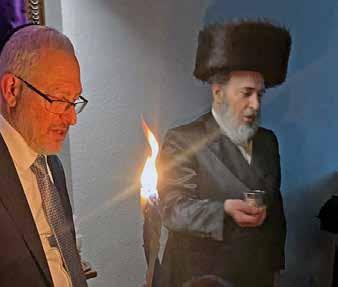
The Travelling Chassidim enjoyed the Shabbos with members of the Shul and found out that this Shul is true to its name: Kesher Kehilla - The Place to Connect.
About The Travelling Chassidim: We’re a group of Chassidic families who travel around Jewish communities, bringing with us classic Chassidic warmth and
liveliness. Coupled with the special aura of the holy Shabbos, we form a deep connection with the hosting community, resulting in a Shabbaton that is truly transformational. The Travelling Chassidim is the brainchild of British-born Rabbi Moshe Royde, of Monsey in New York, USA.













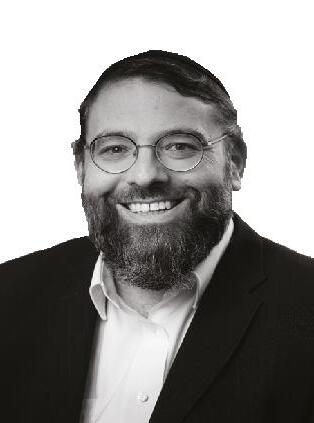
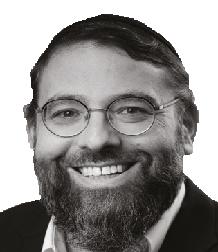



BY RABBI YONASAN ROODYN
This week’s parsha, Chayei Sarah, opens with something painful.
The shock of the Akeida caused Sarah to pass away, and Avraham sets out to find a place to bury her. The Torah doesn’t rush through the process rather it slows right down and lets us listen in on the back-and-forth negotiations with Ephron over the Cave of Machpelah. Every sentence, every detail. It almost feels like we’re standing there, watching Avraham insist on giving Sarah the respect she deserves.
Why does the Torah give so much attention to it? Perhaps this is because Avraham is showing us what honour really means. He’s not just dealing with logistics. He’s saying: this person mattered. Her body held a soul. Her life was holy. To bury someone properly is one of the deepest acts of kindness we can do, we call it chessed shel emes, a kindness that can never be repaid. And Jews have always carried that with
us. No matter where we lived, no matter how hard things were, the chevra kadisha, the holy group that prepares the dead for burial, was always there, working faithfully and discretely. When you see how a community buries its dead, you see what it believes about life.
All of this feels incredibly real right now because we still don’t have all our people home.
Whilst we rejoiced at the return of the living hostages on Hoshana Rabba, Hamas has cruelly drawn out the process of returning the bodies of those who they brutally murdered. The pain that those bereaved families have gone through is hard to put into words and not having a grave to grieve makes it all the more painful because without that, there is no closure.
As I write these words there is talk of the body of Hadar Goldin that has been so cruelly kept in captivity since 2014 has just been brought home to Israel to finally receive the dignified burial and honour that he so richly deserves. This closing of a tragic circle is poignant and meaningful and an essential part of who we are as a
Over 400 women came together last week for Beyond the Label, GIFT’s 4th annual inclusive fashion show celebrating women of all ages, stories, and abilities. What began four years ago as an idea from two 17-year-old Hasmonean High School students has grown into one of GIFT’s most powerful community events, bringing together models whose courage, beauty and authenticity truly embody the meaning of “beyond the label.”
This year’s show, held at The Hive London, was an unforgettable evening of emotion, empowerment and connection. Models included a 102-year-old Holocaust survivor, Henny Franks from Jewish Care’s Holocaust Survivors’ Centre, Gogglebox star Amy Tapper, a 9-year-old girl with Down’s syndrome, and Jess Goldberg from Manchester, who walked in memory of her four-year-old son, Ori. In between every few models, a speaker took to the stage to share her personal story. There wasn’t a dry eye in the room
as strength and vulnerability intertwined, reminding everyone why Beyond the Label means so much. The courage of the models and their willingness to speak openly left the audience deeply moved.
Beyond the Label founder Adina Rosenstein said, “This project started as a high school idea that many said was too ambitious or unrealistic, yet has now become a movement that celebrates confidence, authenticity and joy.”
Shira Joseph, Programme Director at GIFT and co-creator of the event, commented, “It is so inspiring to see a student idea evolve into one of the community’s flagship initiatives. Each year I wonder how we will find a group of inspiring models worried that we have exhausted the pot. Each year I am blown away by the women and their strength and their stories. There are so many amazing women in the community when you look beyond the label”.
Journalist and presenter Suzanne
People.
Last Sunday we marked Remembrance Sunday here in the UK. Across the country, people will stand in silence for those who gave their lives in war. It’s not about celebrating conflict. It’s about acknowledging that the freedoms and safety we enjoy came at a cost. People, real people gave up their futures, so others could have one.
Jewish names are part of that story to and they will also be honoured at the AJEX parade. Our community has stood shoulder-to-shoulder with this country for generations, and too many of our own are buried in military cemeteries with small stones placed gently on their headstones. We honour them because that’s what we do. We don’t forget. We don’t leave people behind.
And that’s why the situation with our hostages feels so sharp.
When we said “bring them home,” we meant all of them including the dead, because the dignity of a person does not end when life does.
Avraham refused to just “make do” for Sarah. He went to great lengths, paid a
high price, insisted that she be laid to rest with honour. That is our inheritance. That is our standard.
So, this week, as we pause to remember those who gave everything so others could live, we also keep speaking, calmly, firmly, without letting the world forget that every hostage must come home. Every family deserves to honour their loved ones, to bury them, to say goodbye with dignity.
May that day come soon. May the remaining families waiting for news find strength. And may the memory of every soul be honoured, with peace and eternal rest until techiyat hameisim.
Rabbi Yonasan Roodyn is the Educational Director of Jewish Futures, a tour guide for JRoots as well as serving as Rabbi of Finchley Federation Synagogue and on the Federation Beth Din’s Shailatext service. He has thousands of classes available online at www.torahanytime. com.
Baum, who hosted and modelled the event, said, “Beyond the Label stands out as my favourite event of the year. In a world of filters and perfection, this show embraces real beauty from the inside out, creating a space where women from all walks of life can celebrate confidence, kindness and self-acceptance.”
In true GIFT spirit, the show was powered by dozens of volunteers, including more than 20 hair and makeup artists who donated their time, as well as photographers and social media professionals offering their services for free.
Goodie bags were packed with donated items from generous community supporters such as Barry M, Jenny’s Cakes and Thank you Hashem.
The evening featured fashion from top community brands including Rebecca Rinder, The Rental Edit, Fame, Keshet Couture, Elegance Design, Gorgeous Gowns, B7 Active, House of Lancry and
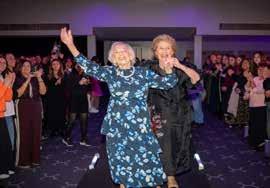
Alona Karen Boutique. There were also accessories provided by Daniel Denton London and Am Yisrael Chai Shoes. The show closed with a moving finale from former Immanuel student Shira Abkin who is an actress and performer. As she sung, the models all walked the catwalk one last time. Following the song, the entire room erupted into dance and hugs.
Beyond the Label 2025 reminded everyone in the room that true beauty isn’t found in perfection but in the courage to be yourself, joyful, confident and unapologetically real.






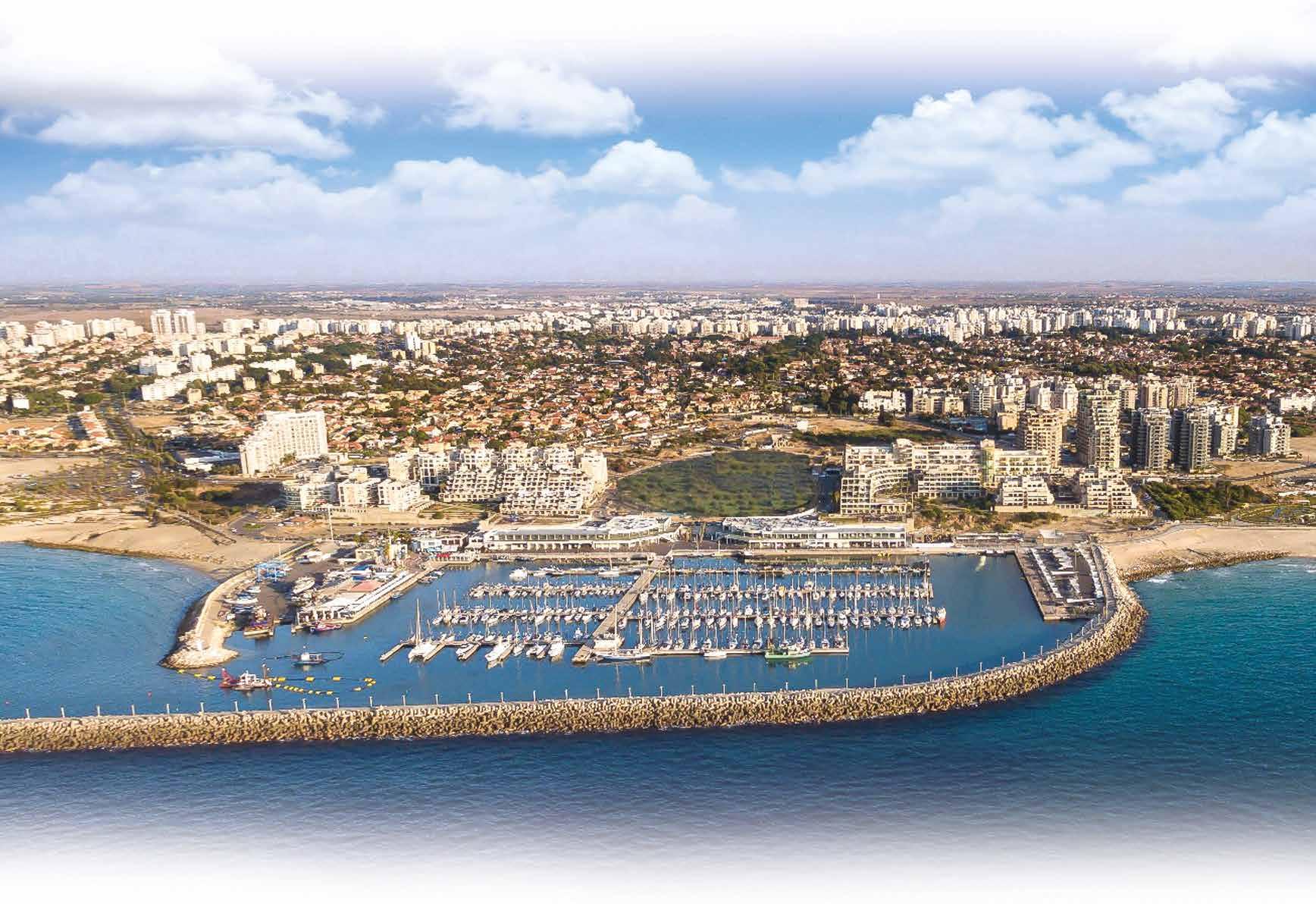






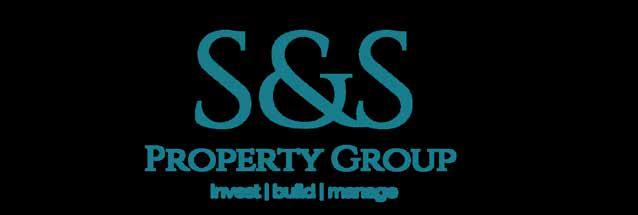


BY RABBI JONATHAN TAWIL
Praying isn’t as easy at it seems. Sometimes we pray for something for years, and never seem to be answered, yet on other occasions we can see immediate success in our prayers.
In this weeks parsha we learn of one of the greatest prayers in history – that of Eliezer.
Rabbi Shimon bar Yochai said: Three people were answered while their words were still upon their tongues: Avraham’s servant Eliezer, Moshe, and Shlomo.
Regarding Eliezer, the verse states, “He had not yet finished speaking, and— look!—Rivkah... came out” (v. 15).
Regarding Moshe, the verse states, “When he finished speaking all these words [after his authority had been challenged by Korach], the ground split open” (Bamidbar 16:31).
Regarding Shlomo, the verse states, “When Shlomo finished speaking to G d [at the inauguration of the holy temple], the fire descended from heaven”.(Bereishis Rabah 60:4)
Three Tsadikim prayed and were answered. Yet there is a difference between Eliezer and the others. Eliezers prayer seems to be even greater, as he was answered even before he had finished his prayer.
Upon inspection the torah goes to great length to tell us about Eliezers mission. Much ink is spilled (so to speak) from the time Avraham sends him away; to the time he succeeds in getting Rivkas consent.
Why does the torah elaborate so much on his mission? Who was Eliezer and was he really so great?
The Midrash brings a famous encounter between Avraham and Nimrod. Nimrod was the ruler of a vast empire and believed himself to be a deity. Avraham had other ideas and knew the truth. He challenged Nimrod and was thrown into the fire. Hashem saved Avraham, and shortly after Avraham left the country.
There is an amazing Targum Yonatan that states that Eliezer was none other than the son of Nimrod.
Nimrod seeing that this man Avraham had succeeded was so impressed that he said it would be better that his son clings to such a man, then to stay a prince in his palace.
Eliezer thus became Avrahams servant. But what kind of servant was he?
Avarham referred to his servant as ‘Damesek Eliezer’.
Our Sages teach us that the word Damesek is an acronym of the words “Doleh Umashkeh”, meaning the one who draws from the well and gives of it’s water. Furthermore, “He (Eliezer) controlled all that was his (Avrahams).” This teaches us that Eliezer had dominion over the Torah of Avraham (Yoma 28b). Eliezer had complete mastery of Avraham’s teachings and was authorised to disseminate his lessons to others. The Midrash adds that Eliezer had control over all that was his
- himself, he had complete self-control and mastery over his yetzer hara.
He was Avraham’s Talmid, his vehicle for fulfilling his mission in the world of spreading Hashem’s life sustaining Torah. He drew from Avrahams Torah and fed others. Not only was he a Talmid Chacham but he was also the most faithful of servants to Avraham.
Although he expounded on Avraham’s teachings to the public, managed Avraham’s estate and was Avraham’s representative to the world, he introduced himself to Betuel and Lavan as ‘Eved Avraham anochi’, I am Avraham’s slave. He considered himself to be a mere servant, and did not take credit for his achievements.
When the time came to look for a wife for Yitschak, Avaraham summoned none other then his top confidant Eliezer for the mission.
Avraham did not want his son to marry any Canaanite women, and chose to send Eliezer in search of a wife, to his family in Aram Naharayim.
The Midrash enlightens us as to what occurred before Eliezer set of.
Eliezer himself was father to a lovely daughter. In his eyes, it would have been the perfect match. He yearned that his daughter would marry Yitschak.
He approached Avraham and hinted to him that his daughter would offer the perfect match.
Avrahams response was startling.
“My son is Baruch-blessed, and you are Arur-cursed, and one who is Arur cannot cleave to one who is Baruch.” Eliezer was a descendent of Cana’an the son of Cham who was cursed by Noach whereas Avraham was descended from Shem, who received Noach’s blessings – they could not match.
Wow. If we were Eliezer, I wonder how we would have acted on hearing that?
“I have been your confident, your servant for years, I do all you say, I teach your torah, I am in charge of your house, you are everything for me, how can you call me cursed?!
Eliezer’s reaction was far from that. Instead he kept quiet, and fulfilled his masters request to go to Aram Naharayim many miles away to find a wife for Yitschak.
He arrived at the well and makes a supplication to the G-d of his master Avraham, and before he knows it he is answered.
We can now understand why his prayer was so potent.
The Gemara states ‘The world subsists only through the merit of he, who in a quarrel restrains himself to nothingness “bolem azmo beshaat meriva”. As it says “He hangs the earth upon nothing” (belima) (Iyov, 26:7). R. Abbahou said: the World rests only upon the merit of the one who thinks of himself as nothing, as it says “ Underneath are the arms of the world” (Devarim 33:27).
His prayer was potent because the whole world rested upon his shoulders. The Midrash (Bereishit Rabba 60:7) re-
lates that through Eliezer’s dedication and loyalty to Avraham, he changed from Arur to Baruch.
He might have been justified to answer back, to even renegade against his Shelichut, but that wasn’t Eliezer. Eliezer was an Eved Neeman a true servant, true to Hashem, and true to Avraham. This was a massive merit.

Yet this was not the only thing Eliezer had going for him.
Before he set out Avraham had prayed that Hashem send before him his Malach to help Eliezer. And once Eliezer reached the well, he prayed in the merit of Avraham. Thus Eliezer had the help of Zechut Avot. He prayed to Hashem in the merit of Avraham.
With these two powerful antidotes, his
massive merit after an act of Belima, and the merit of Avraham enabled his prayer to reach the highest of heavens and he was answered even before he finished praying.
The best time to pray is after an act of selflessness. When one acts against his will, but for the will of Hashem. When we conquer our Yetser that is the shaat Ratson.
That Et Ratson together with the Zechut Avot will surely lead to success.

BEGINNERS’ COURSE - 19TH JANUARY 7:30PM
INTERMEDIATES 20TH JANUARY 1:30PM BRIDGE FOR SINGLES 18 – 30S ONLY FREE TASTER - 12TH JANUARY 7:30PM
TASTER - 12TH JANUARY
BEGINNERS’ COURSE - 19TH JANUARY 1:30PM
HAROLD SCHOGGER’S BRIDGE 18 HIGHVIEW GARDENS, EDGWARE, HA8 9UE 0208 905 3877
SCHOGGER@HAROLDSCHOGGER.COM WWW.HAROLDSCHOGGER.COM

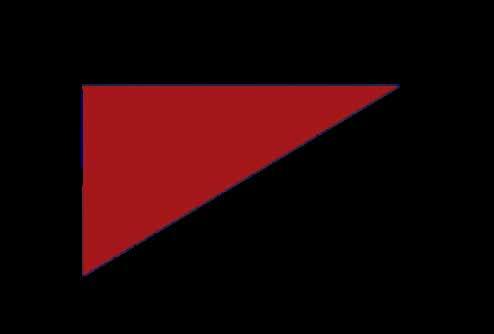

1 2 b u i l d i n g s a c r o s s 5 p l o t s
3 – 5 b e d r o o m o p t i o n s
G a r d e n A p t s . a n d p e n t h o u s e s
M i n u t e s f r o m s h o p s a n d c a f é s
P a r k i n g & S t o r a g e
E a s y a c c e s s t o R o u t e 6
N e a r f u t u r e t r a i n s t a t i o n
G r e e n p a r k s a n d o p e n v i e w s
G r e a t p a y m e n t s c h e d u l e
O c c u p a n c y : 2 0 2 9
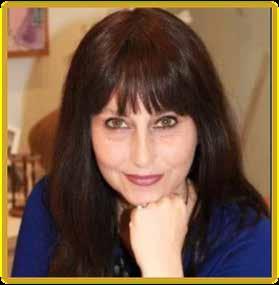

T h i s e x c i t i n g n e w p r o j e c t i n t h e
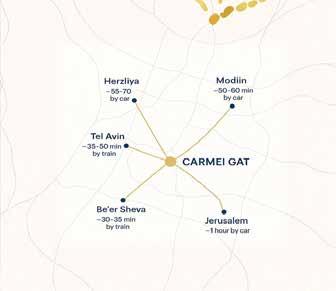
f a s t e s t g r o w i n g c o m m u n i t y i n
I s r a e l c o m b i n e s m o d e r n d e s i g n ,
g r e e n s u r r o u n d i n g s , a n d a w a r m
a t m o s p h e r e : p e r f e c t f o r f a m i l i e s
a n d i n v e s t o r s . A s p e c i a l 1 5 / 8 5
p a y m e n t p l a n i s c u r r e n t l y a v a i l a b l e
f o r a l i m i t e d n u m b e r o f u n i t s ,
m a k i n g n o w t h e i d e a l t i m e t o t a k e
a d v a n t a g e o f t h i s r a r e o p p o r t u n i t y .
S t a r t i n g P r i c e : ₪ 1 . 8 4 M / £ 4 4 0 K






• 2 years, part time
• Global cohort
• Expert international faculty
INCLUDING MODULES IN
• Leadership & Management
• Teaching & Learning
• Pedagogy
• Traditional sources
• Contemporary challenges
• Adult Education
• Informal Education
Discover Chanukah at the British Museum
Sunday 7 December
Join one of our famous tours with expert guides as we illuminate this eternal story, through the ancient Greek galleries.
Classic Tour
Michelle Sint 10:30am–1pm
Family Tour
Rafi Cohen
2–4:30pm Recommended for ages 11–15

How was his thought original and radical?
LSJS is the home of learning Rabbi Sacks’ Torah.
Join this new course with expert teachers such as Rabbi Dr Raphael Zarum, including key topics such as faith, evolution, social change, truth, morality & loneliness.
Wednesdays 8–9pm | Online





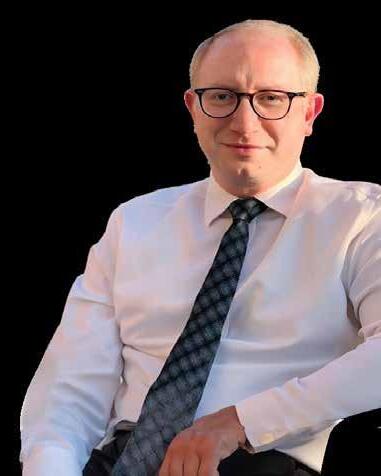
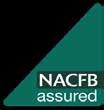

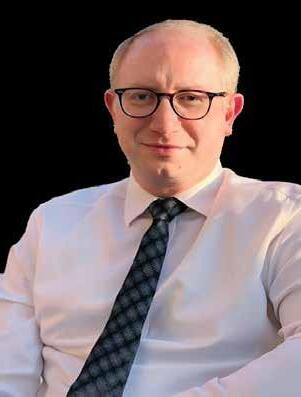
SHOULD ALL JEWS MOVE TO ISRAEL NOW?
Dear Rabbi
With the new mayor of New York and the rising tension we’re seeing globally, is it time for all Jews to finally pack up and move to Israel?
Scott
Dear Scott
The question of where a Jew should live is as old as our people itself. From Abraham’s call of “Lech lecha” - “Go to the land that I will show you” - the pull toward Israel has always been both physical and spiritual. But let’s be honest: some of the loudest voices shouting “Everyone must move now!” are often those who’ve just bought property or made Aliyah themselves. And sometimes, it sounds less like conviction and more like self-justification. Fear can be contagious, and panic rarely makes for good policy. It’s true: the climate today feels increasingly uncertain. Antisemitism is rising. The headlines are unsettling. But Jewish history also tells another story: of Jews living and thriving in every corner of the world, serving as a moral light and spiritual anchor even in exile. Our response cannot be one of panic or despair. Judaism doesn’t teach escapism; it teaches purpose.
The Talmud tells us that wherever a Jew goes, the Divine Presence goes with them. That means every Jew has a mission exactly where he or she is placed. For many, the dream of living in Israel is not only national but deeply personal. To move to Israel should never be an act of fear, but an act of faith. We don’t run away to Israel; it should be done out of genuine conviction.
If one feels called, practically and spiritually, to make Aliyah, that’s beautiful – and so be it. But Judaism also needs ambassadors in London, New York, and Johannesburg. We need people who build communities, raise Jewish families, and illuminate the societies around them. So, should all Jews move to Israel now? The answer is: all Jews should face Israel now - in heart, in prayer, in unity, and perhaps, for some, in geography. But until the day comes when the ingathering is complete with the coming of Moshiach, our task is to be faithful wherever we stand, turning darkness into light. Don’t be impressed from the world. Make your impression on the world!
Dear Rabbi
My daughter was invited last week to a Halloween party. I
objected because I don’t think it is appropriate for Jewish kids to be celebrating Halloween. The sad fact is that the whole party was being hosted by Jewish kids – all from a class in (name of school deleted). How can this be right?
Sandra
Dear Sandra
Halloween, for all its commercial fun and colourful costumes, has origins that are completely foreign to Jewish values and traditions. Everything that Halloween represents is the antithesis of Judaism. Halloween is about darkness. Judaism is about light. It’s about scaring. Judaism is about kindness. It’s about taking – trick or treat – Judaism is about giving. Halloween emphasises death. Judaism celebrates life. What’s a Jew got to do with Halloween?
Moreover, its roots lie in pagan and later Christian customs, and while today most people treat it as harmless entertainment, it still represents a culture and symbolism that have nothing to do with who we are or what we stand for.
When Jewish children participate in it
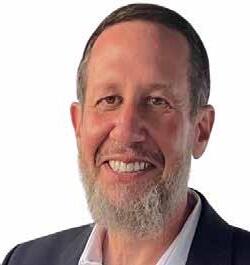
- especially when it becomes normalised within Jewish schools or circles - it signals a slow erosion of identity. We don’t need to borrow someone else’s holiday when we have plenty of joyous holidays of our own - including Purim, a day of joy, costumes, and meaning.
That being said, the goal isn’t to be killjoys; no need to be too harsh. It’s a good opportunity to talk to kids about who we are and to teach them to take pride in their own unique identity.

To get the best value from your private medical insurance, you should speak to an expert who is qualified to advise you on the right policy for you, and recommend the providers who offer the most competitive premiums. This advice covers individual, family and company policies, and is always FREE.
As an independent health insurance expert, I work with the healthcare insurers to provide you with the appropriate and most affordable level of cover. So whether you have an existing policy or not, let’s have a chat.
You can contact me at 020 3146 3444 or 07956 244350 trevor.gee@patienthealth.co.uk


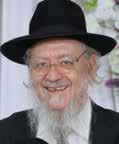
BY RABBI YAKOV SCHONBERG
Was King Shlomo’s outer altar made of copper or was it made of stone? The altar in The Second Beis HaMikdash was certainly made from stone and was four amos larger, as described in the Mishnah Middos (3:1). This issue is central to the debate between Rabbi Yehudah and Rabbi Yose in Zevachim 59a concerning the copper altar mentioned in the pasuk describing King Shlomo’s Beis HaMikdash dedication ceremony. “On that day the King sanctified the interior of the courtyard that was before the House of HaShem … there he brought the Olah offerings … because the copper altar that was before Hashem was too small to accommodate the olah offerings …” (Melachim I 8:64). The previous pasuk relates that the peace-offering that Shlomo brought was 22,000 cattle together with 120,000 sheep, a total of 142,000 korbanos. How could the altar accommodate such a large number of korbanos? The pasuk refers to a copper altar, but that could be understood to mean Moshe’s much smaller altar. Did Shlomo perform this service of offerings on the floor of the courtyard, or did he construct a new larger altar?
After the completion of the Temple building, Shlomo brought up the remains of the Mishkan from Giveon. During the years since the Bnei Yisrael entered the Land, the Mishkan built by Moshe in the desert had been stationed in Gilgal, Shiloh and Nov, and after the destruction of Nov in Shaul’s time, it had been in Giveon (Divrei Hayamim I 21:29). Now that the Mishkan would no longer be used, Shlomo had it brought to Yerushalayim and stored away in the Temple precincts (Rashi, Melachim I 8:4). Did Shlomo start to use Moshe’s copper altar in the First Beis HaMikdash as indicated by its mention in the above pasuk? Let us explore the different sources.
COPPER AS A FIGURE OF SPEECH
There is a parallel passage in Divrei Hayamim II (7:7) relating the account of the inauguration of the First Beis HaMikdash by King Shlomo. The pasuk reads: “Shlomo sanctified the inside of the courtyard which lay in front of the House of HaShem, for there he brought olah offerings … because the copper altar which Shlomo had made was unable to accommodate the olah offerings …”. It is very similar to the Melachim version, but here it explicitly says that Shlomo made a copper altar. Furthermore, when the
building of the Beis HaMikdash is described, the pasuk states clearly: “He made a copper altar whose length was twenty cubits and its width was twenty cubits and its height was ten cubits
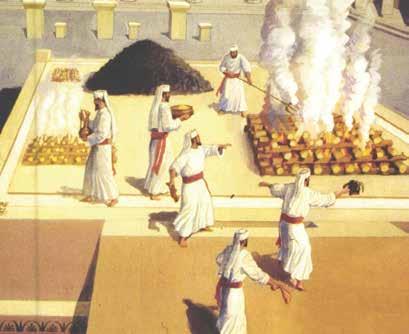
(Divrei Hayamim II 4:1). Similarly, in Yechezel, the pasuk relates that six Divine messengers spread through the city and came and stood by the copper altar (Yechezkel 9:2). Shabbos 55a queries why it is called a copper altar seeing that the altar in the Beis HaMikdash was not made of copper, but of stone. The Gemara answers that the allusion to copper identifies the location where the Levi’im accompanied the sacrificial service with copper musical instruments. Tosafos (Shabbos 55a, s.v. mizbach) likewise explains that it was called a copper altar in Divrei Hayamim to teach us that a stone altar that has shirah sung before it, gets the same halachic status as other copper vessels of the Beis HaMikdash. Rashi justifies the name “copper altar” saying that since Shlomo’s stone altar was a replacement for Moshe’s copper altar, the pasuk calls it a copper altar.
Zevachim 61b teaches that the fire descended from heaven upon the copper altar for Moshe and remained there until the days of Shlomo. This fire continued to burn always and during travels a large copper vessel was placed over the fire so that it would not burn the covering in which the altar was carried. The fire that came down in the days of Shlomo, did not depart until Menasheh came and removed it. This clearly indicates that Shlomo built a new altar, because if Moshe’s copper altar continued in use, no new fire would have been needed (Artscroll Divrei Hayamim II, p.351). The above debate on Zechavim 59a clearly assumes that on the day that Shlomo’s altar was built, Moshe’s altar was withdrawn.
The above machlokes between Rabbi Yehudah and Rabbi Yose hinges on the ability of the altar to process the enormous numbers of animals at the inauguration. Rabbi Yehudah takes the pasuk literally, meaning that Shlomo sanctified the floor of the courtyard so that offerings could be burnt on it. The Gemara cites an event that took place some four years before the inauguration, when Shlomo, at the beginning of his reign, accompanied by a large entourage, went to Giveon to bring offerings of gratitude to HaShem. It relates that Shlomo brought one thousand olos on the altar there on that day (Melachim I 3:4). It is mind boggling to imagine such a large number of sacrifices on Moshe’s altar, which only had one square amah in the center to burn the offerings. Assuming that he had twelve hours during the day in which to make all these offerings, a quick calculation shows that each offering was consumed in less than a minute. However, at the inauguration we are told that Shlomo offered 142,000 animals and that works out at a fraction of a second for each. We can understand that the Heavenly Fire consumed the limbs of these animals in a flash, but the logistics of preparing that number of animals, even if assisted by a large number of Kohanim, is unimaginable. The Gemara is concerned about the comparative size of Shlomo’s stone altar in relation to Moshe’s altar. However, Rabbi Yehudah held that Moshe’s altar measured ten by ten amos, as the five amos mentioned by the Torah are taken from the middle of the altar. The site of the fire would then be six by six amos, as two amos are deducted from each side for the horns and the Kohanim’s walkway. The area for burning is then 36 square amos and if 1,000 olos could be burnt in one day on Moshe’s altar, then pro-rata, only 11,000 could be offered on Shlomo’s altar, much less than the required 142,000. Rabbi Yehudah was therefore justified in asserting that Shlomo sanctified the floor because the altar was too small. However, Rabbi Yose holds that Moshe’s altar was only five by five amos, leaving only one square amah in the center for the fire. We can therefore understand that if 1,000 animals could be offered in a day on a one square amah space, then an altar measuring twenty by twenty, or 400 square amos, could easily handle 142,000 korbanos, as the pro-rata
figure would be 400,000 korbanos.
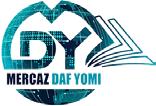
There may be another angle as to why the copper altar retained its original name even after being built as a stone altar. Rashi comments on the instruction in parshas Terumah to build the altar out of shittim wood, which was to be covered with copper. Rashi gives the reason for the use of copper:
, “to atone for arrogance, as it says: “And your forehead is copper” (Yeshayah 48:4). A person sins because of his brazenness contrary to the will of HaShem – he symbolically raises his forehead when it ought to be bowed in shame or humility. It is interesting to note that the word “brazen” has its origin in the metal “brass”, which is a copper/ zinc alloy and also “bronze”, a copper/tin alloy. Copper, bronze and brass are shiny and hard, giving rise to the word “brazen.” Copper is among the boldest of metals since it resists corrosion, because as it oxidizes it forms a thin stable layer of green copper oxide, which seals and protects the underlying metal from corrosion. Bringing an offering on the altar is indicative of one’s subjugation to the will of HaShem, recognizing his brazen sinful action.
The Ralbag (Melachim I 8:24) asserts that Shlomo built a stone altar, but it was called a copper altar because it was plated with copper on the outside. Shiltei HaGiborim (chapter 26) says something similar but adds that the stones were surrounded by cedarwood boards coated with copper. This would be something like the altar of Shiloh, which Rabbi Nassan describes in Zevachim 61b as a hollow structure of copper and filled with stones. Rav Yerucham Fishel Perla, expounds on Sefer HaMitzvos of Rav Saadia Gaon, who enumerates the mitzvah of building a copper altar as one of the Taryag mitzvos (Parshah 55/56). Since Moshe’s copper altar was not for future generations, it should not have been included in the count. Rav Perle cites the above Shiltei HaGiborim and asserts that the Shiloh structure must have been used by Shlomo for his Beis HaMikdash as well when he constructed his altar and therefore it was correct to call it a copper altar, despite it being filled with stones.
Rabbi Schonberg was born in London in 1948 and attended Hasmonean School. He attended Manchester, Chaye Olam and Gateshead Yeshivos.
To contact Rabbi Schonberg, please email, yschonberg@gmail.com
To find out more, you can sign up at mercazdafyomi.com and receive a free gemoroh.
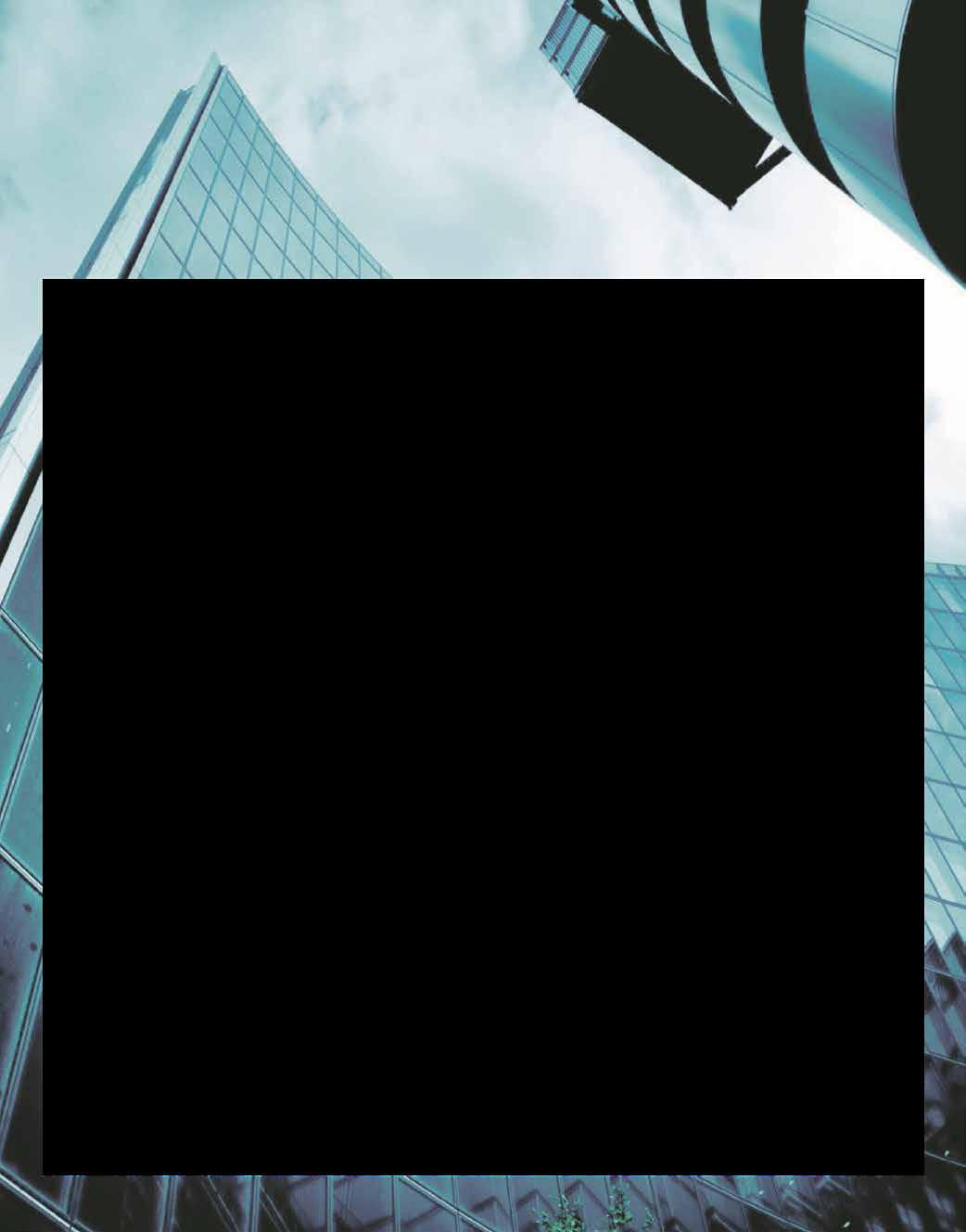


With stricter Inheritance Tax rules, planning ahead has never been more important. Of all the strategies we've put in place for clients over the years, one stands out as the most popular. It's simple, cost -effective, and works regardless of the type of assets you hold.
If your goal is to mitigate Inheritance Tax (IHT) and:

You're in good health

You're aged 88 and under (the younger, the better)

You have a lump sum available
…then this could be the silver bullet to solving your Inheritance Tax conundrum. It involves a one-off gift to a special trust and delivers a predictable, potentially generous return designed to mitigate your Inheritance Tax exposure helping to secure your family’s financial future when they need it most.
To receive a short article explaining how this unique, expertly crafted strategy works, simply email ; article@arnoldaaron.co.uk


BY RABBI MOSHE TARAGIN
Bereishit is more than a record of the past. The lives of our ancestors set patterns that continue to shape Jewish history. Their experiences became models that repeat across generations. This concept — ma’aseh avot siman la-banim — teaches that the stories of our founders are not only moral lessons but blueprints for our national journey.
One such historical blueprint unfolds as Avraham arrives in Chevron seeking a burial site for Sarah. He introduces himself with a striking phrase: “Ger ve-toshav anokhi imachem” — a stranger and a resident among you. He had lived for many years in the Land of Israel, often near Chevron — yet he still calls himself a stranger. In part, he remains an outsider, having never purchased land and relying on the goodwill of others who hosted him. In part, this phrase reflects his humility. Despite his reputation and growing influence, Avraham assumes no privilege. He signals that he will negotiate in good faith and offer full payment for the field.
However, Avraham’s use of the word ger carries deeper historical meaning. When Hashem forged His covenant with Avraham, He foretold that his descendants would be strangers in a foreign land and ultimately enslaved in Egypt. That prophecy of estrangement begins even as Avraham lives in the Land of Israel. Though promised the land by divine decree, he finds himself a guest within it — living among others who still hold rightful claim. Even when finally given the chance to acquire property, it is limited to a small burial plot — obtained only after long, painful negotiations.
This moment tests Avraham’s emunah: promised the land by Hashem, he now confronts the reality that others still hold rightful claim to it. Avraham does not force his claim or demand immediate ownership. He respects the current residents and accepts the slow pace of divine promises. His faith is deep enough to remain calm when the fulfillment of nevuah seems delayed. He trusts that the land will one day belong to his descendants and that Hashem’s word will unfold in its proper time.
He also understood his mission: to model moral conduct in a land bereft of it. He had witnessed societies that degraded women and watched as Sedom, steeped in corruption, was destroyed. Surrounded by moral decay, Avraham sought to model compassion and kindness. He welcomed guests, rescued his nephew, refused spoils of war, and preferred peace treaties to coercion. To
act unjustly would betray his moral mission. Confident in divine prophecy and committed to moral integrity, he does not seize the land but acquires it honorably, paying full price.
Avraham’s struggle — to wait faithfully for divine promises while acting morally in a corrupt world — echoes in our generation. We too see our return to this land as rooted in a divine promise and as part of a redemptive process foretold to our ancestors.
I was recently interviewed by a journalist from the United States who asked why some people react so strongly against Messianists. “Isn’t messianism,” he wondered, “synonymous with aggression toward others who live in the land?”
I explained quietly that it is precisely my messianic belief — my confidence in the fulfillment of Hashem’s promise — that allows me to respect the rights of others who also live here. Because I am certain that history’s end is guided by Hashem, I can afford to take the long view. I labor to settle our homeland, yet I do so with the quiet confidence that its destiny is already written. That certainty enables me to act with patience and restraint. The term messianic should not carry a pejorative tone; it reflects faith in ancient prophecies and trust in their unfolding within history. Sadly, many of our neighbors refuse to live peacefully alongside us, making it harder to safeguard the rights of those who do seek coexistence. Our first responsibility is to protect our people. Yet conceptually, there is no contradiction between messianic belief and respect for the rights of others.
The tension Avraham lived — between promise and incompletion —shapes Jewish life, both in Israel and throughout the Diaspora. The Rov -Rabbi Joseph B. Soloveitchik- saw this same duality — the longing to be toshavim while remaining gerim — as the essence of Jewish identity in exile. We yearn to contribute to the societies around us and to be accepted as full citizens. Still, we remain distinct — guarding the inner core of our identity even as we engage with the world. Ger ve-toshav thus describes not only our unfinished settlement in the Land of Israel but also the enduring tension of Jewish life in foreign lands.
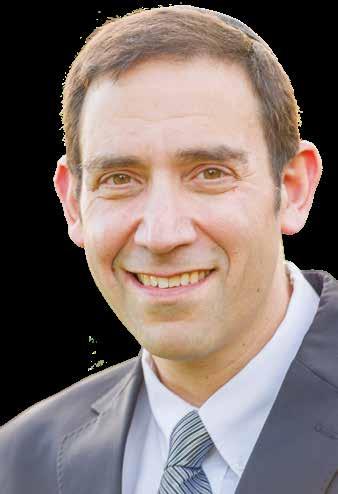
No matter how deeply we integrate or how loyal we are to our host countries, history reminds us — often painfully — that we are still seen as different.
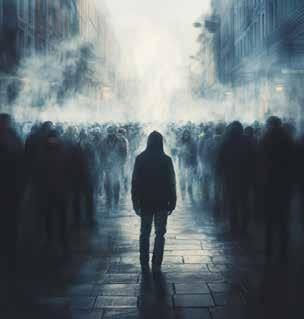
Like Avraham, we are striving to become toshavim and to settle the land promised to us. Yet for now, we remain in an intermediate ger-like state — blessed with sovereignty but not yet complete settlement.
Avraham’s story becomes our own. We walk in his shadow — longing for completion, yet living with faith and restraint amid what remains unfinished.
History has often reminded us of this truth in harsh ways. We once believed we had become toshavim, only to discover how fragile that acceptance could be. The first example was in medieval Spain. Jews had lived there for nearly seven centuries, deeply woven into Spanish culture and instrumental in its ascent as a global power. Yet a wave of violence in the late 14th century shattered that fragile acceptance and was followed, a century later, by expulsion. Centuries of belonging vanished in an instant, reminding us that we were always just gerim in the land of Spain.
Four and a half centuries later, we were reminded once again of our ger status. For nearly two hundred years, Jews had helped build modern Europe — advancing science, culture, and liberty. Yet Hitler revived Europe’s oldest hatreds and turned them into a movement of annihilation. After generations of striving to become full toshavim, European Jews were cruelly shown that in the eyes of
their hosts, they were still gerim.
Today, American Jewry may be confronting its own ger ve-toshav moment. Over the last century and a half, Jews in the United States have lived with a freedom and opportunity unmatched in our history.
New York City in particular has long been intertwined with the Jewish experience in America. It is home to the largest Jewish population outside Israel, and the city itself has been profoundly shaped by Jewish life, culture, and values.
The election of a New York City mayor who expresses hostility toward Israel is a troubling development, reflecting a possible shift in America’s political climate. No one can know where this will lead. Despite our deep longing for every Jew to return to Israel, we never wish hardship upon our brothers and sisters as a means of prompting aliyah. We hope that Jewish life in America remains stable and secure, so that Jews may choose to come home out of faith and love, not fear or compulsion.
This latest election marks a ger ve-toshav moment for American Jewry — a stark and sobering reminder that even in the safest of lands, we remain gerim. History’s lessons return, reminding us that the tension between ger and toshav still defines our story. Until our people are gathered and the land is restored, we remain wanderers yearning for wholeness.
The writer, a rabbi at Yeshivat Har Etzion (Gush), was ordained by Yeshiva University and holds an MA in English literature. His books include To Be Holy but Human: Reflections Upon My Rebbe, HaRav Yehuda Amital.


This week’s parasha begins with a sad event: Sarah dies at the age of 127. Avraham is very sad and mourns her passing. He buys a piece of land on which to bury her which is called the Cave of Machpelah in the city of Chevron. He pays 400 silver shekels. This is the place where all of our patriarchs (Adam, Avraham, Yitzchak and Yaakov) and matriarchs (Chava, Sarah, Rivkah and Leah, but of course not Rachel) are buried. Yitzchak is now forty years old and not married. Avraham asks his trusted servant Eliezer to go to Charan, Avraham’s city of birth, and find a wife for Yitzchak. Eliezer brings lots of beautiful jewellery and
gifts for the future wife. But how will he find her? There were many girls in Charan! So he asks G‑d for a sign to let him know which girl is the right one for Yitzchak. The sign is that when he will ask a girl for water to drink from the well, she will offer to give water to the camels as well.
Well, along comes Rivkah (remember she was born in last week’s parasha?) Who offers water to Eliezer and the camels and invites him to her father’s house. When Eliezer asks for her hand in marriage on behalf of Rivkah’s great uncle Avraham, Rivkah says yes. She was happy to marry a righteous and kind person such as Yitzchak and get
•AKEIDA
•ABRAHAM
•BESUEL
• CAMEL
• ELIEZER
• HAGAR
• LAVAN
• WELL
• YISHMAEL
• YITZCHAK
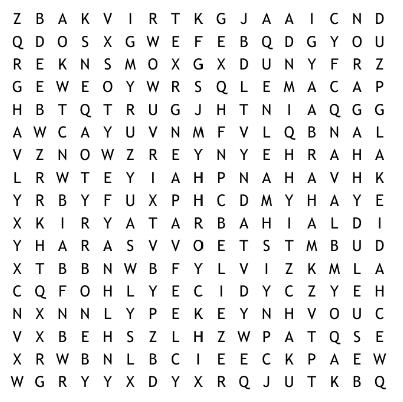
away from her family who were not very honest nor righteous. Rivkah travels to the land of Canaan with Eliezer and marries Yitzchak. When Yitzchak marries her he understands that she is the right wife for him and feels a bit better after losing his mother Sarah. How is that? When Sarah was alive there were three great miracles which happened every week: the challah she baked for Shabbat stayed fresh from one week to the next; the candles she lit on Friday night stayed lit the whole week; and there was a cloud on her tent which was a sign that G‑d was present all the time. When she passed away these
miracles stopped; after Yitzchak and Rivkah got married they returned. That was Yitzchak’s sign that she was the right one for him—that Rivkah was pious and righteous just like Sarah was!
Avraham also remarries Keturah who is actually Hagar, the wife Avraham married before he and Sarah had Yitzchak. Why the new name? Because she repented from her not good ways and started a new life as a better person. At the end of the Parasha we learn that Avraham dies at age 175 and is buried next to Sarah in the Cave of Machpelah in Chevron.
Number of Verses - 105
Number of Lines - 171
Number of Words - 1,402
Number of Letters - 5,314
Last week’s answer: You take two edible items, where item #1 is forbidden to cook and eat, and item #2 is permitted - put them together, wait, and after a while, item #1 is permitted to cook and eat, and item #2 is forbidden! What are the items?
The answer is:
Meat and salt. Raw meat is forbidden to cook and eat because of the blood it contains, and salt of course is permitted. But, put the two together, and the salt draws out the blood. Now the meat may be cooked and eaten, while the salt becomes not kosher.
Source: Shulchan Aruch, Yoreh De’ah 67:2, 69:11
This week’s Question:
Which Tractate of the Talmud fits the following description:
The Aramaic translation of the name of this Tractate is the name of a different Tractate?

✔ Prime location ✔ Close to schools, synagogues, and essential amenities ✔ Two parking spaces ✔ Excellent transport connections ✔ Situated in an area undergoing urban development
Q: What bites but doesn’t have teeth?
A: Frost!
Q: Who is Frosty’s favorite aunt?
A: Aunt Arctica!
Q: What is the Mexican dish that snowmen like?
A: Burrrrrrrito!
Q: What do you call a ghost in the winter?
A: Casbrrrr!
1. I change my moods from mild to severe; I can bring you joy or instill fear. What am I?
2. I blanket the earth in a quiet white, and make everything seem pure and bright. What am I?
3. I can be given but never bought, spoken but not caught. What am I?
• Suits now from £50
• Overcoats from £69.50
• Knitwear from £10
• Casual Jackets from £29.50
• Sports Jackets and Blazers from £39.50
• Trousers £20 each 2 pair for £30 28-48 inch waist
• Shirts from £10
• Shoes from £15





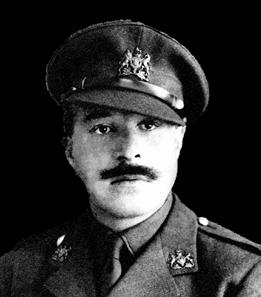
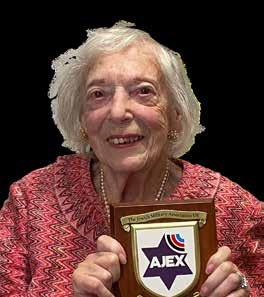


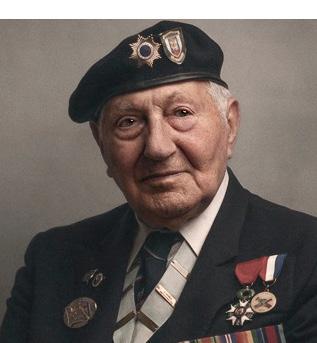

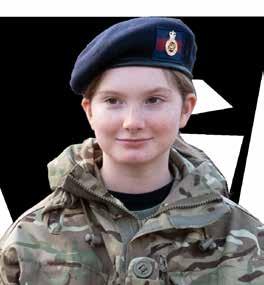
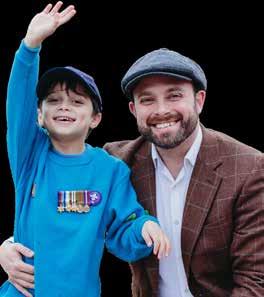


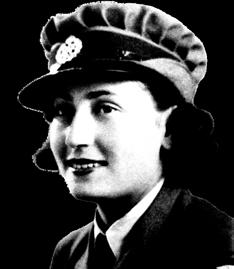
Join AJEX in the 80th anniversary year of the end of World War II. The Parade is an opportunity to show our pride as Jews contributing to British society, past & present. We will honour the thousands of Jewish men & women who fought for our freedom. Never been before - this is the year to join us. All ages are welcome.



